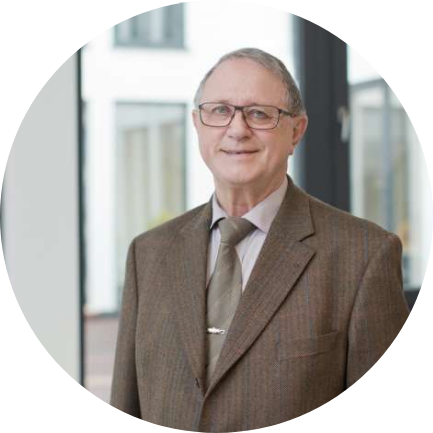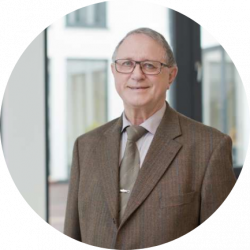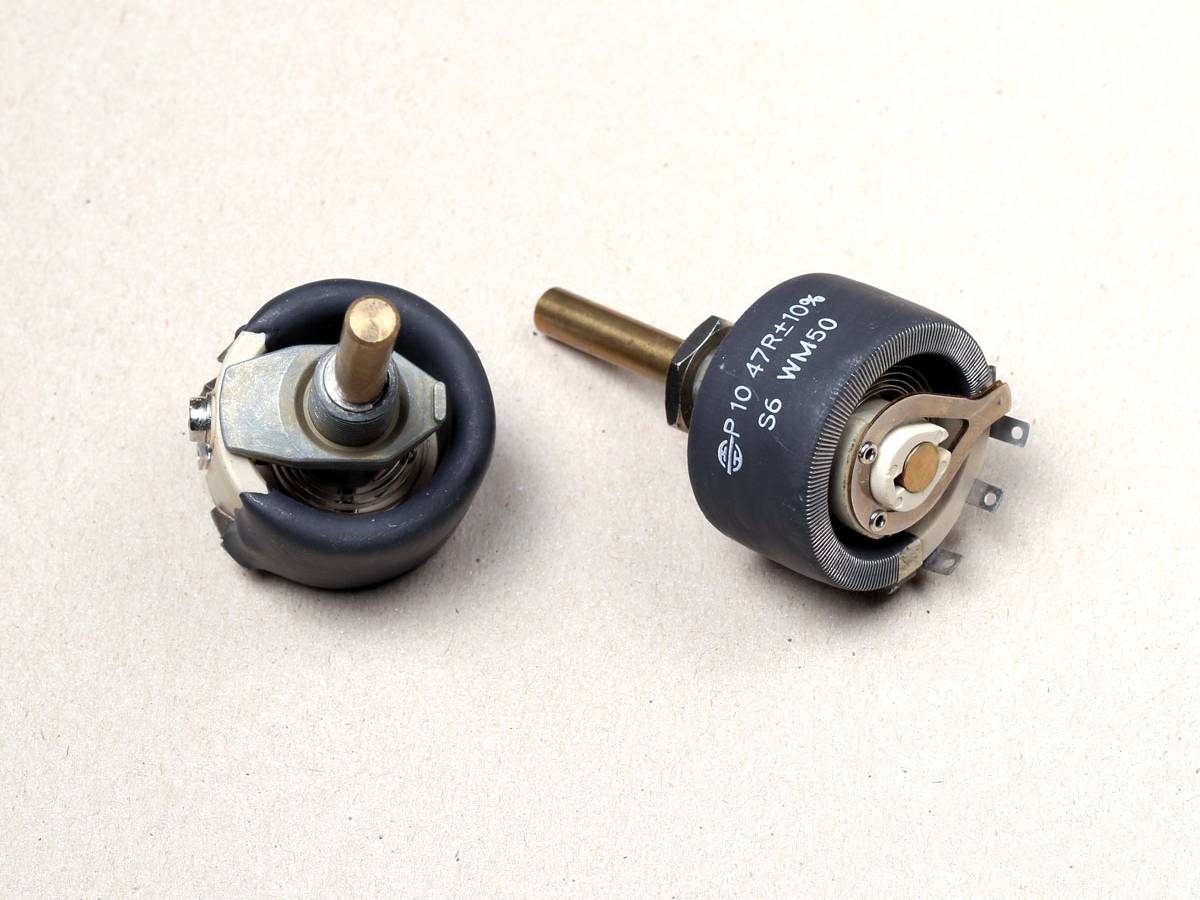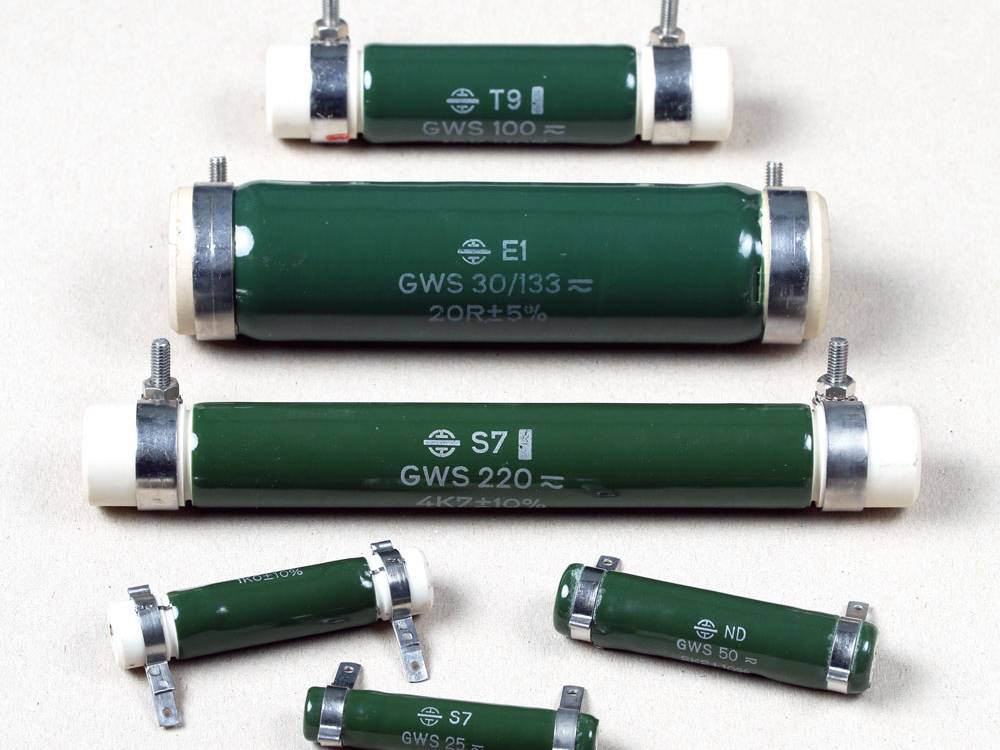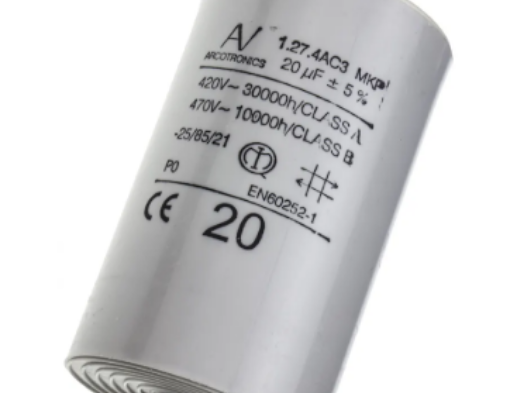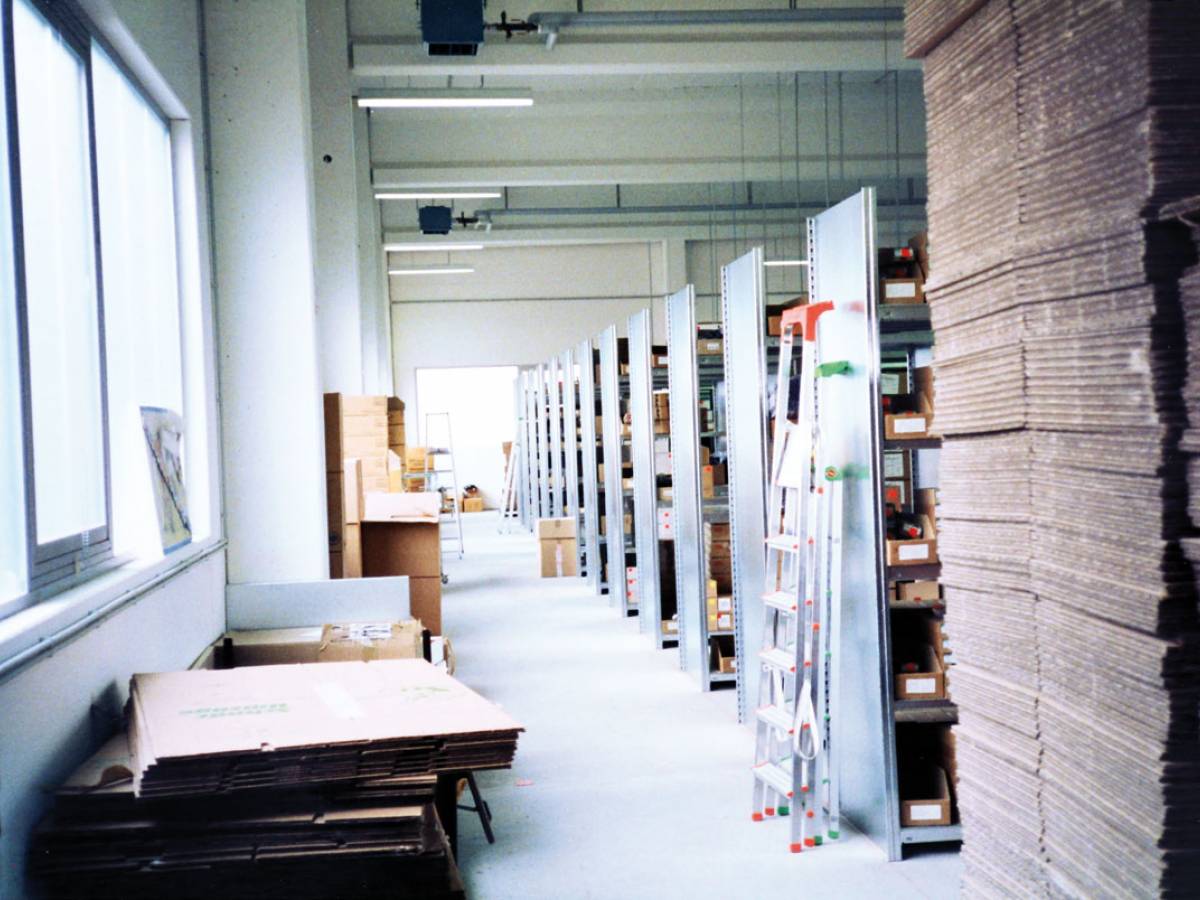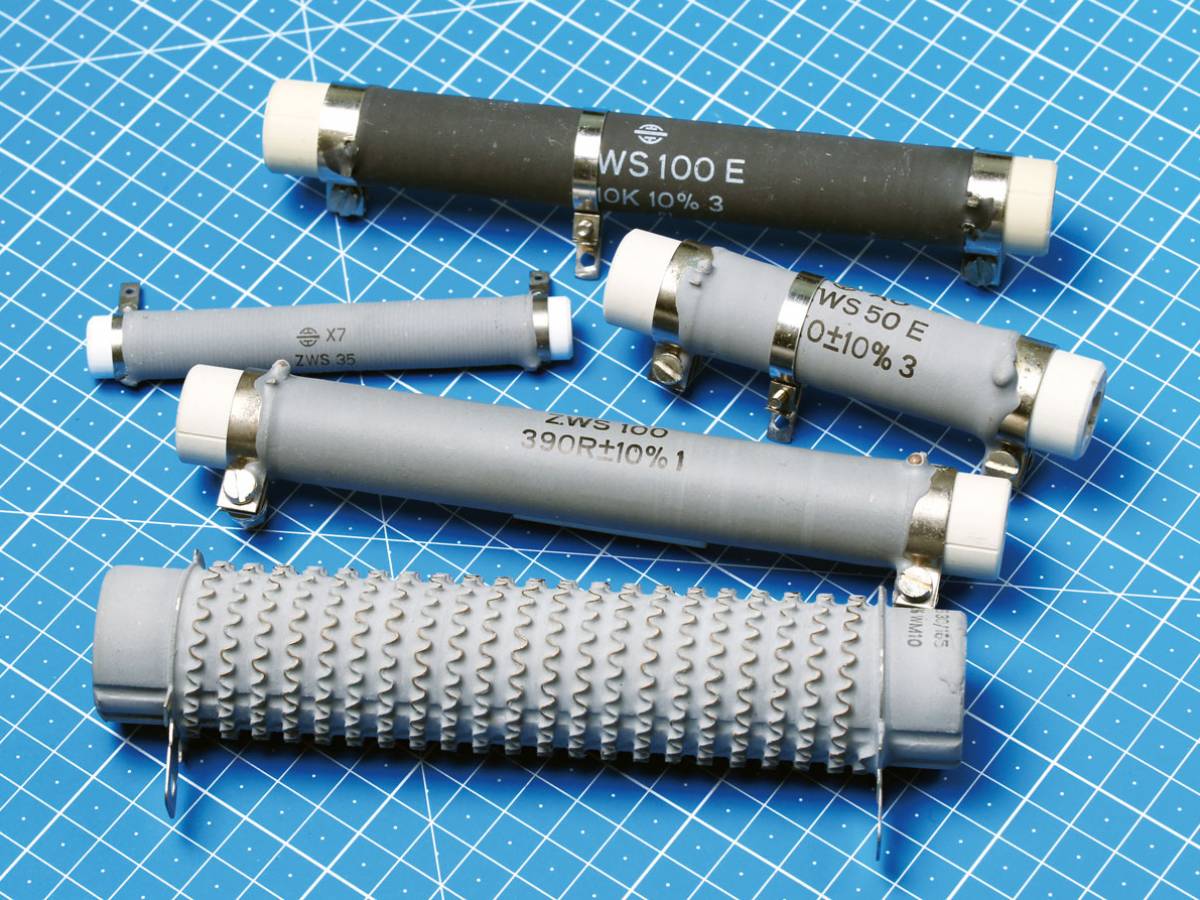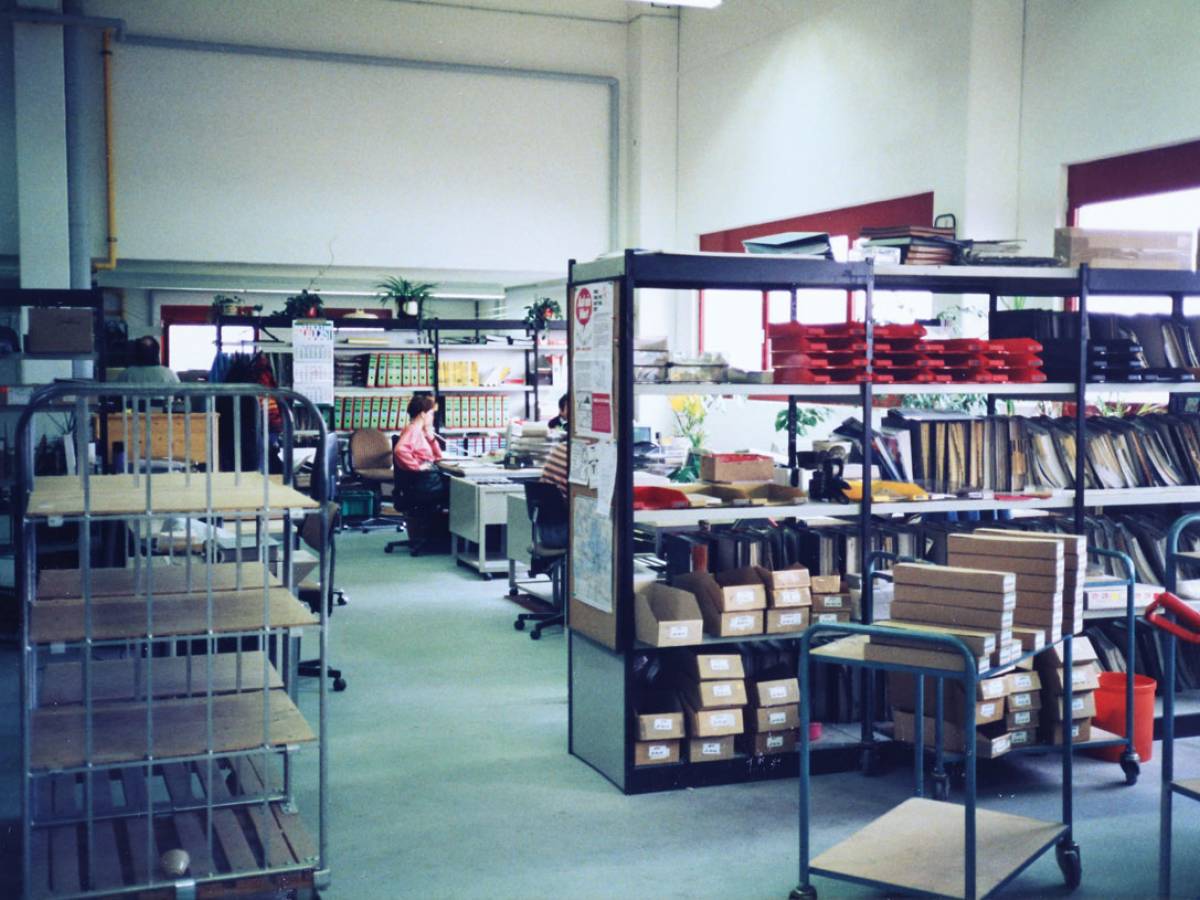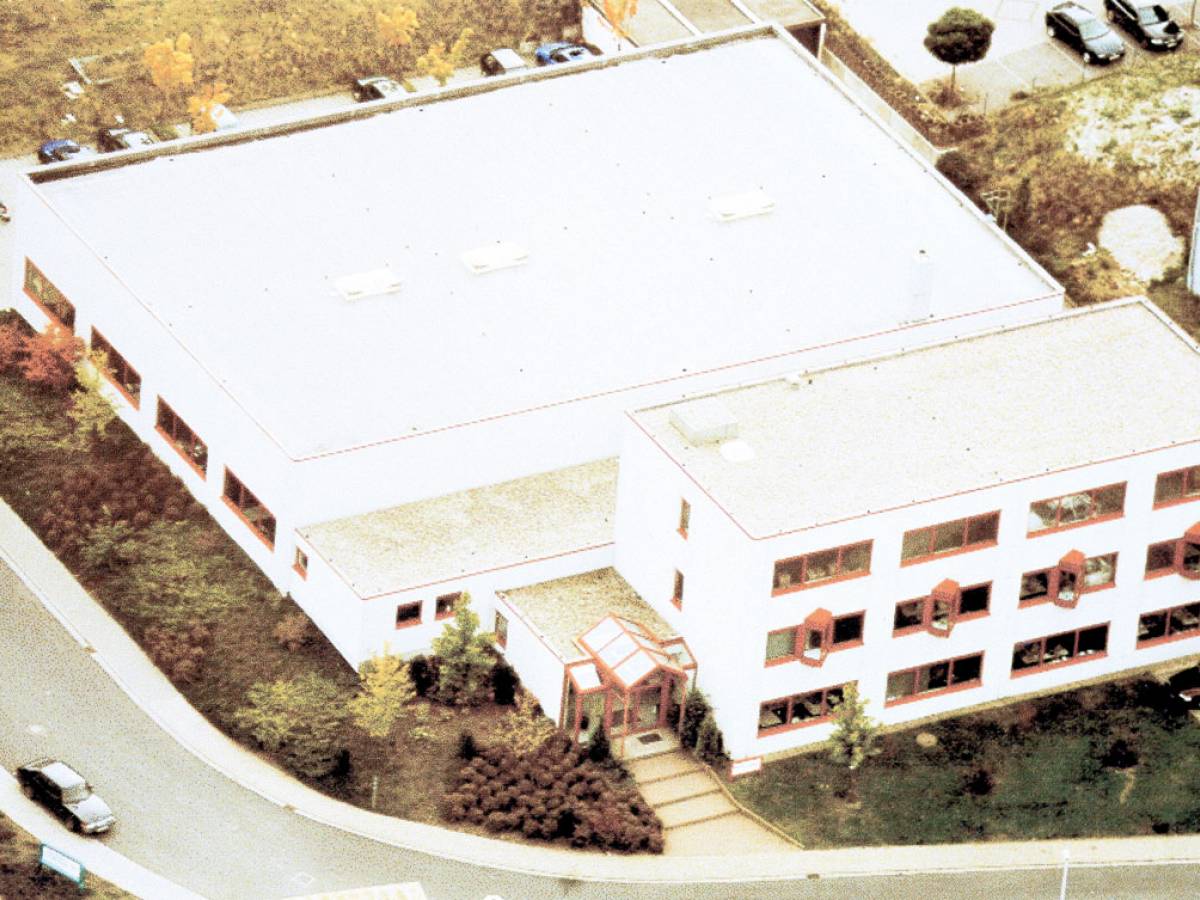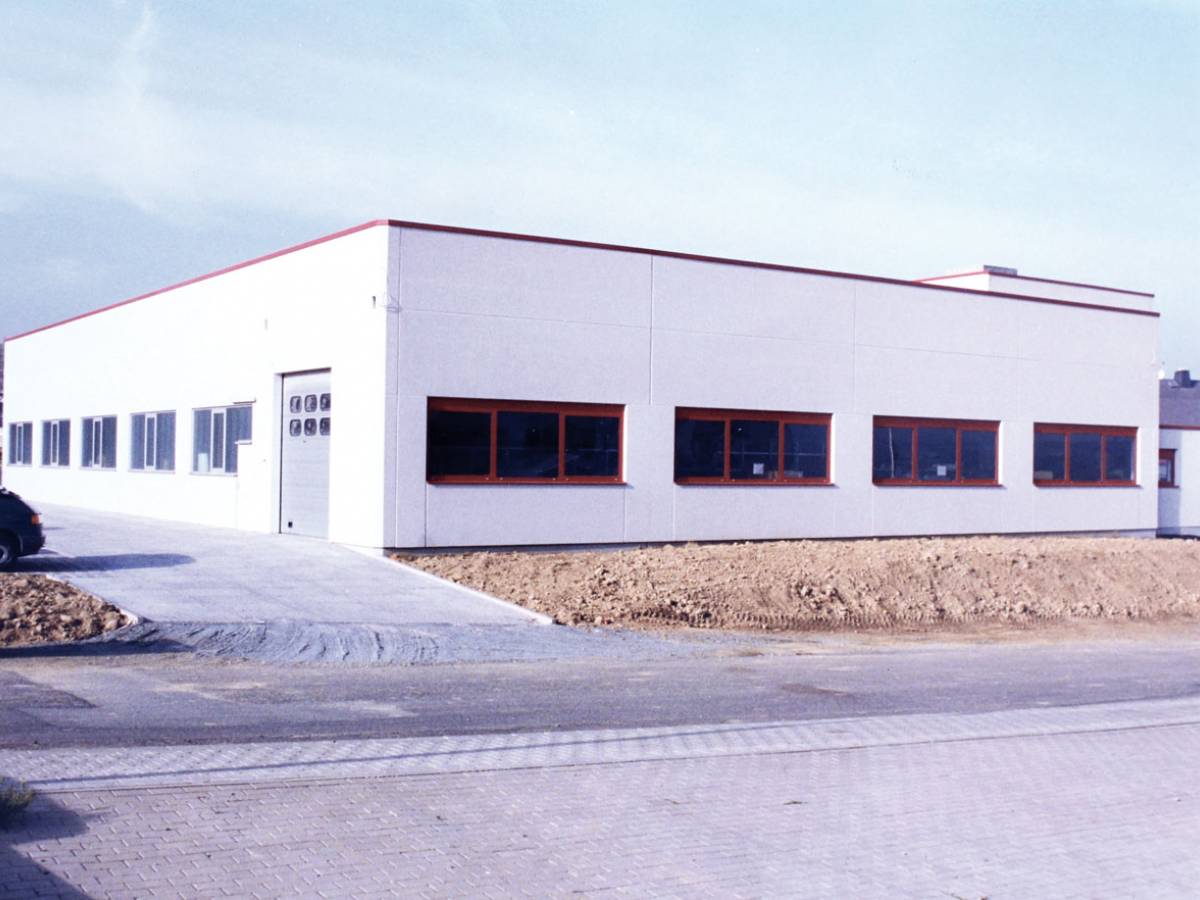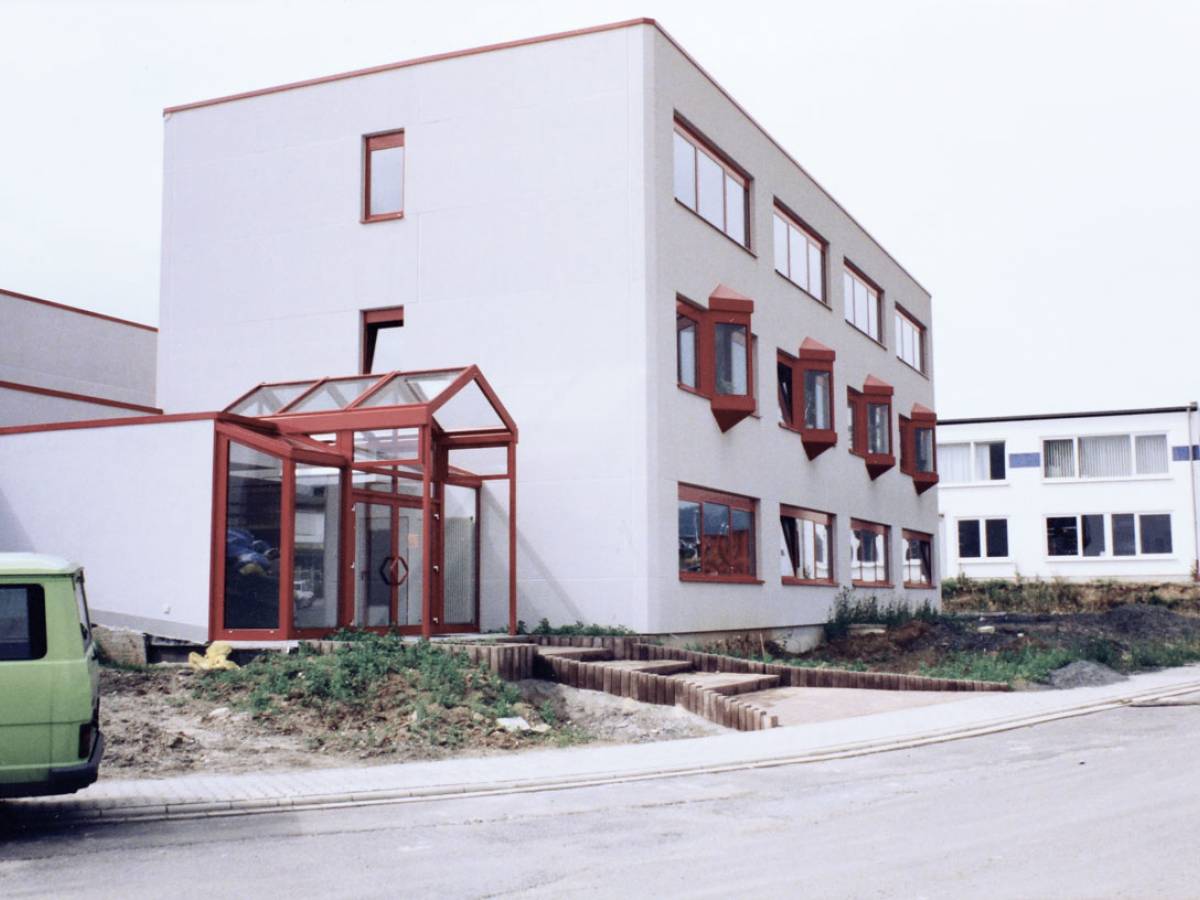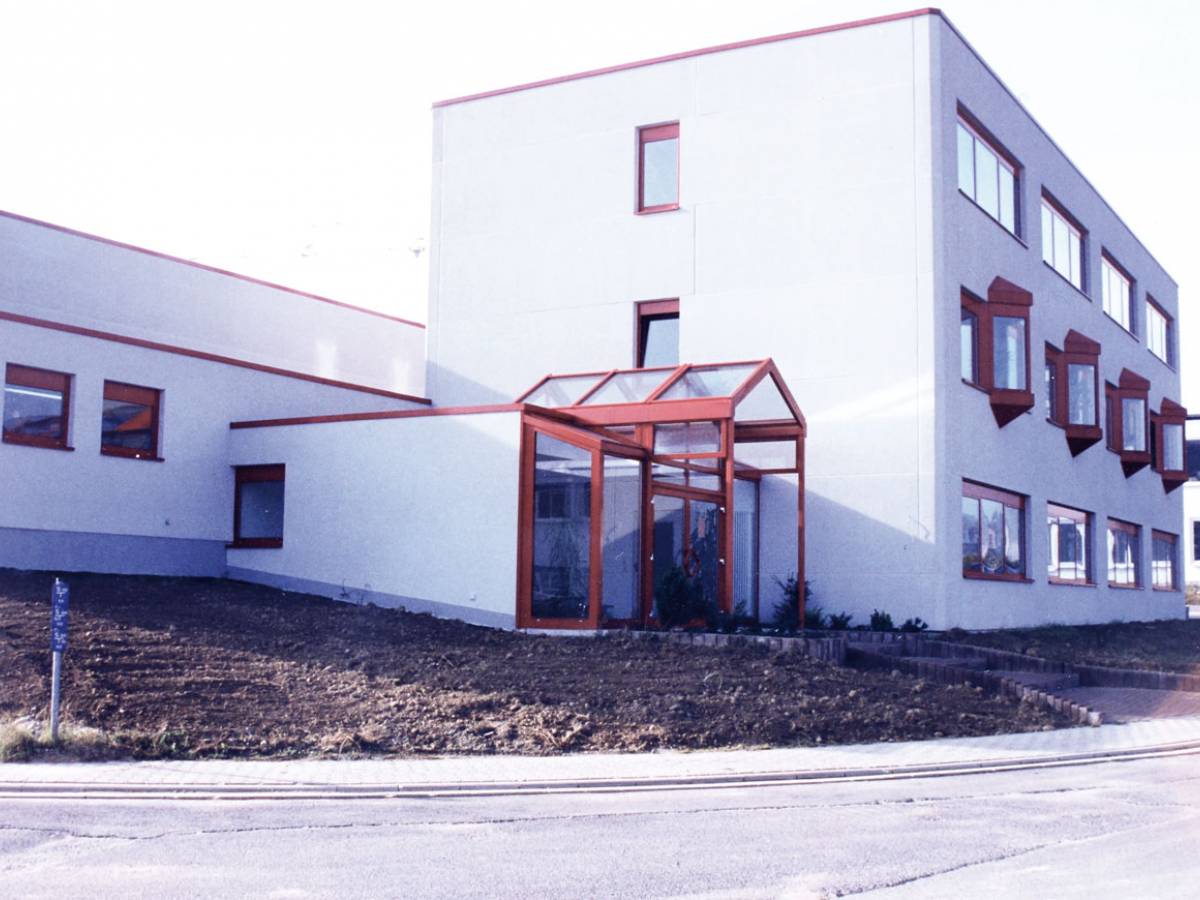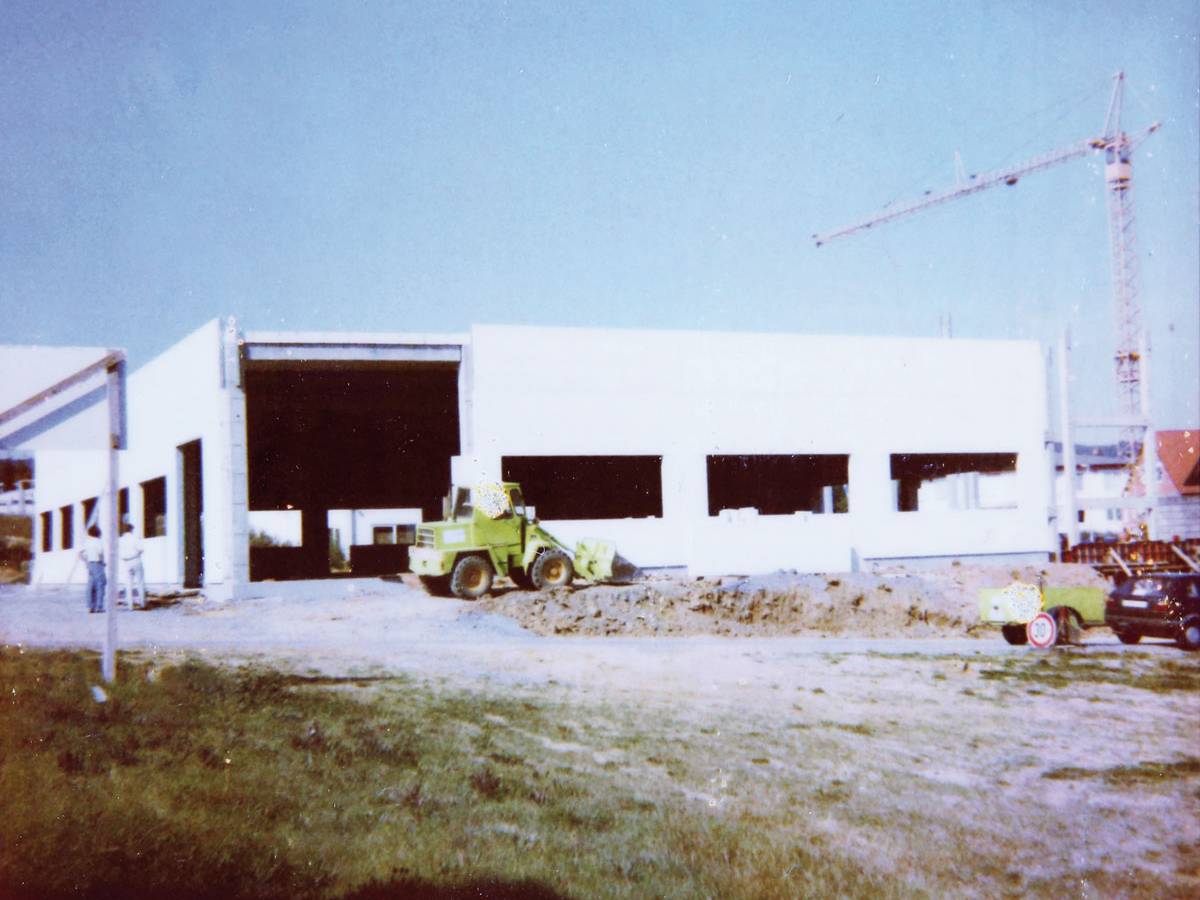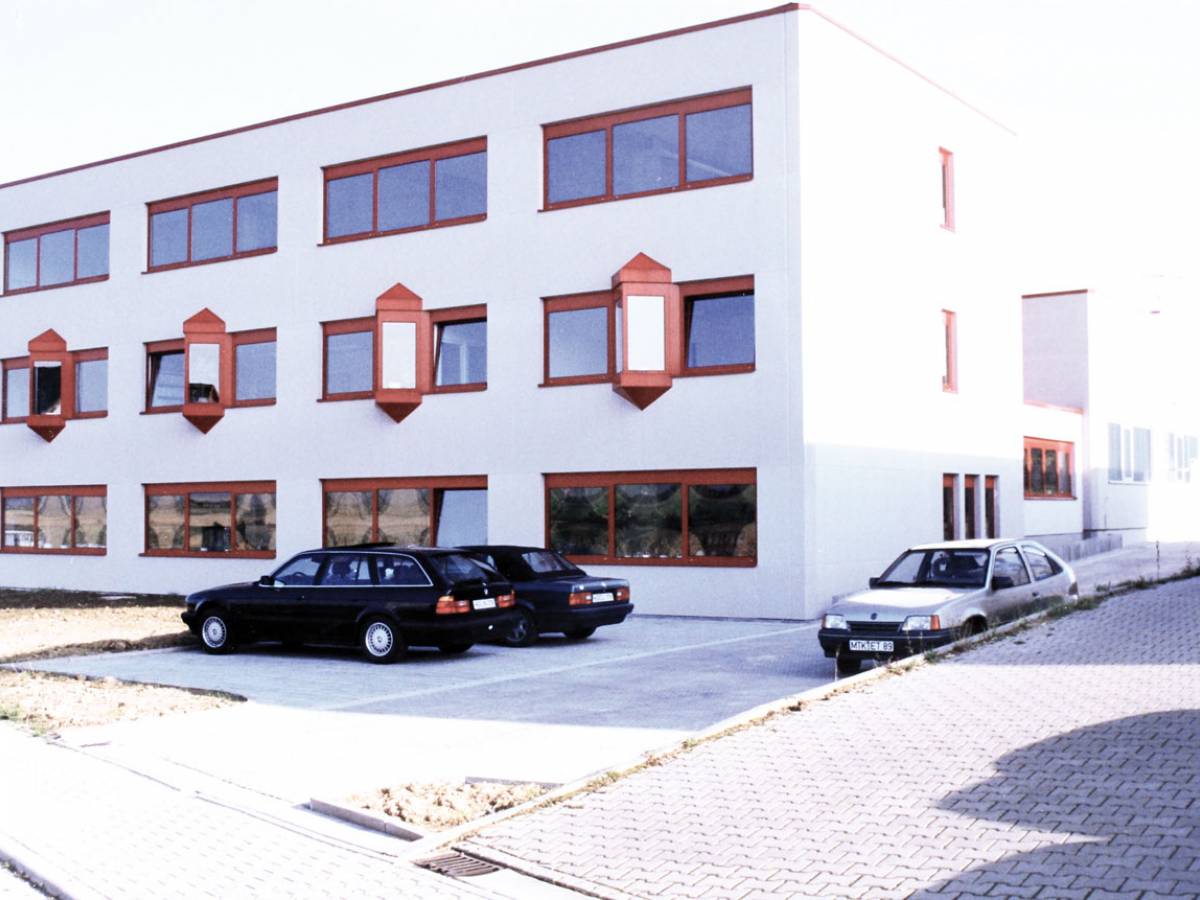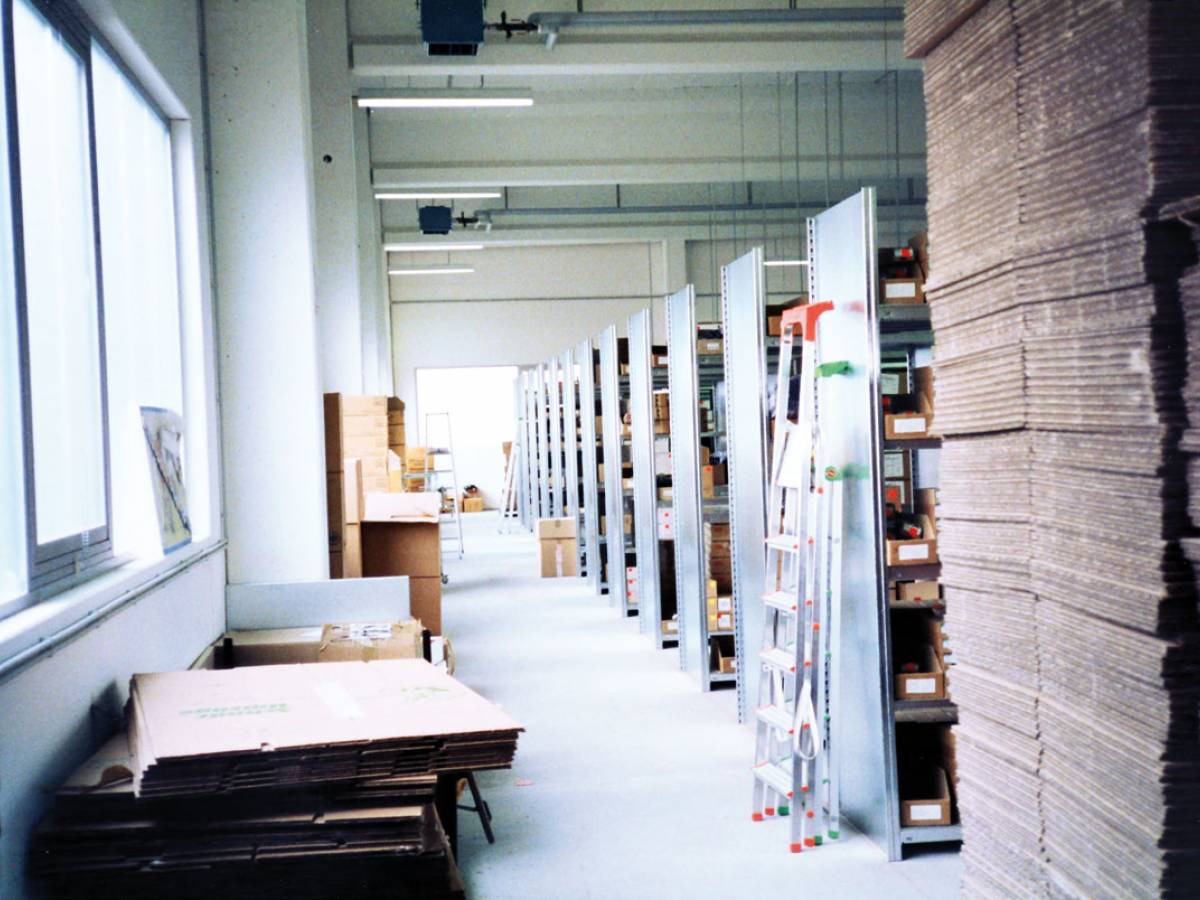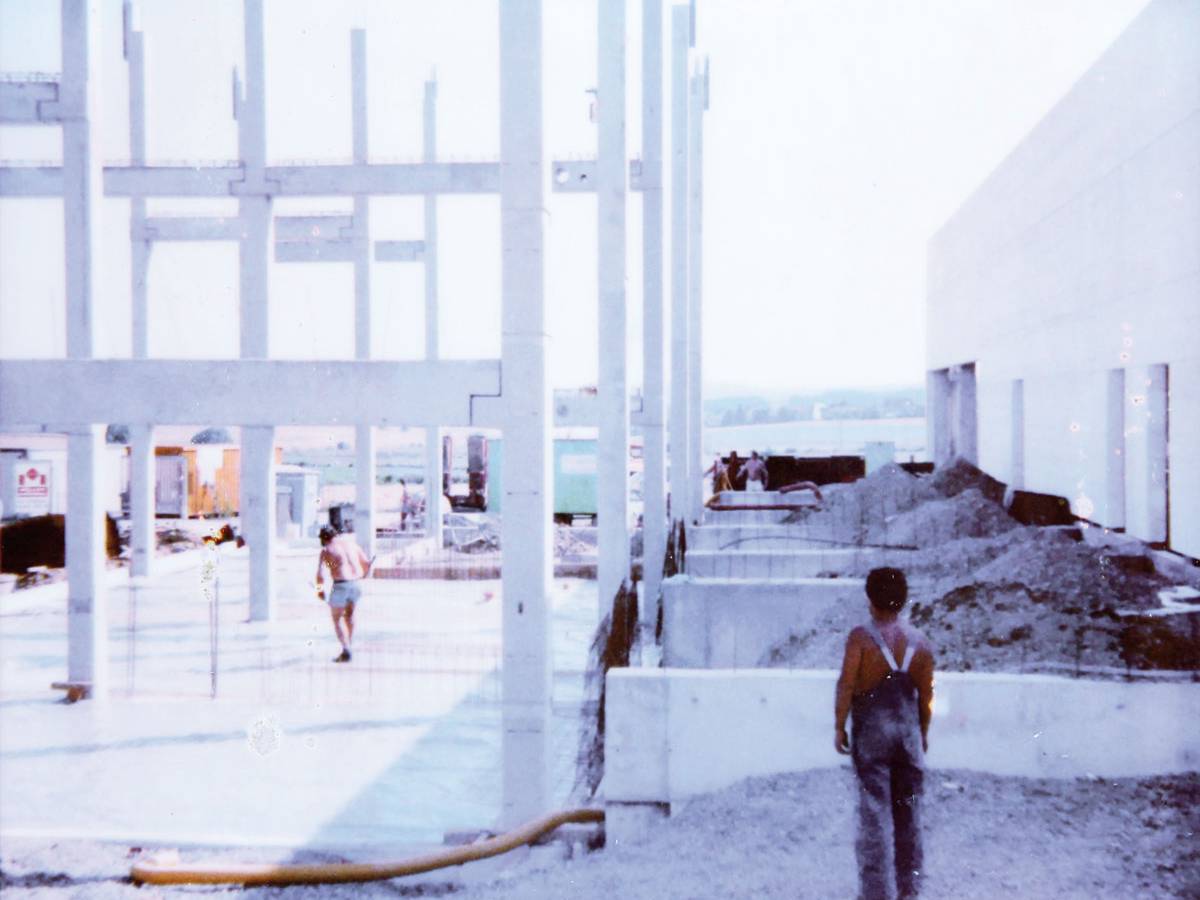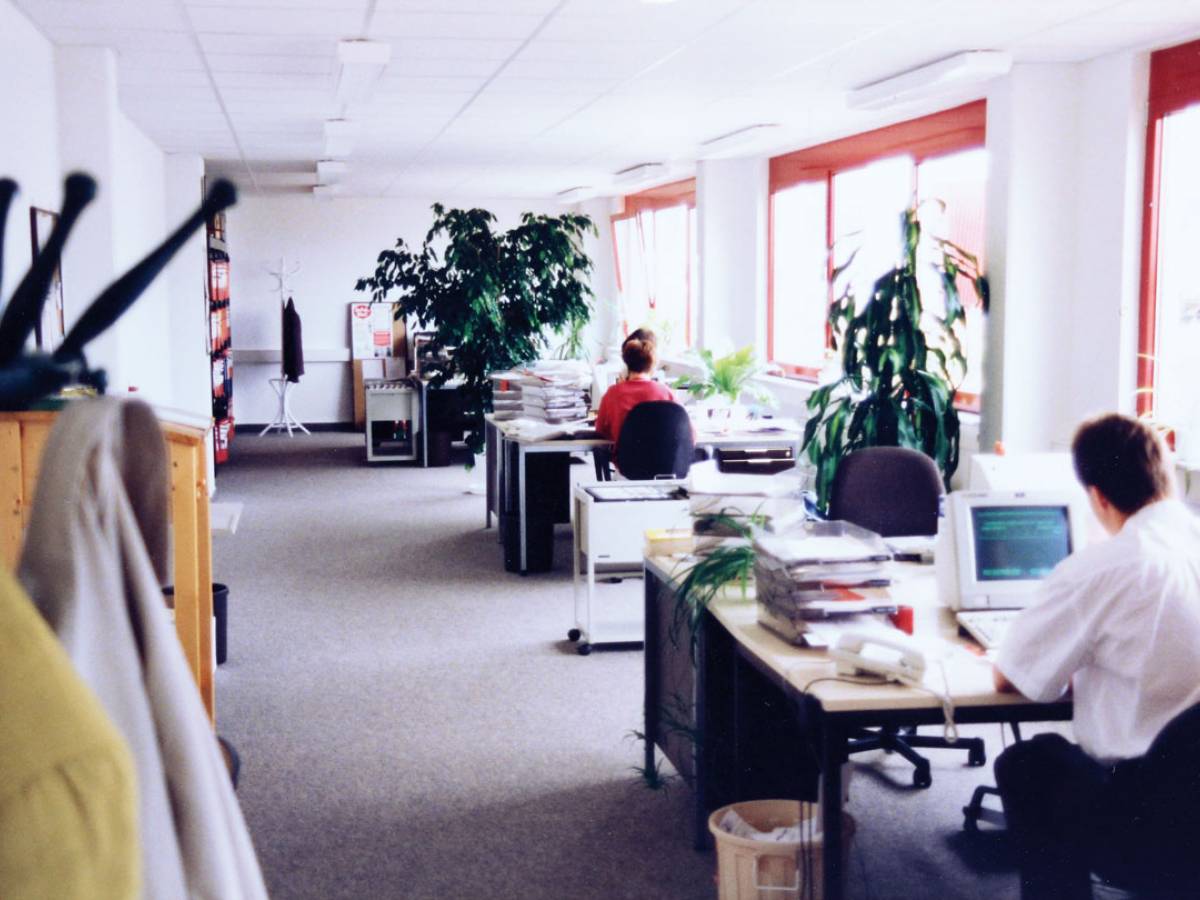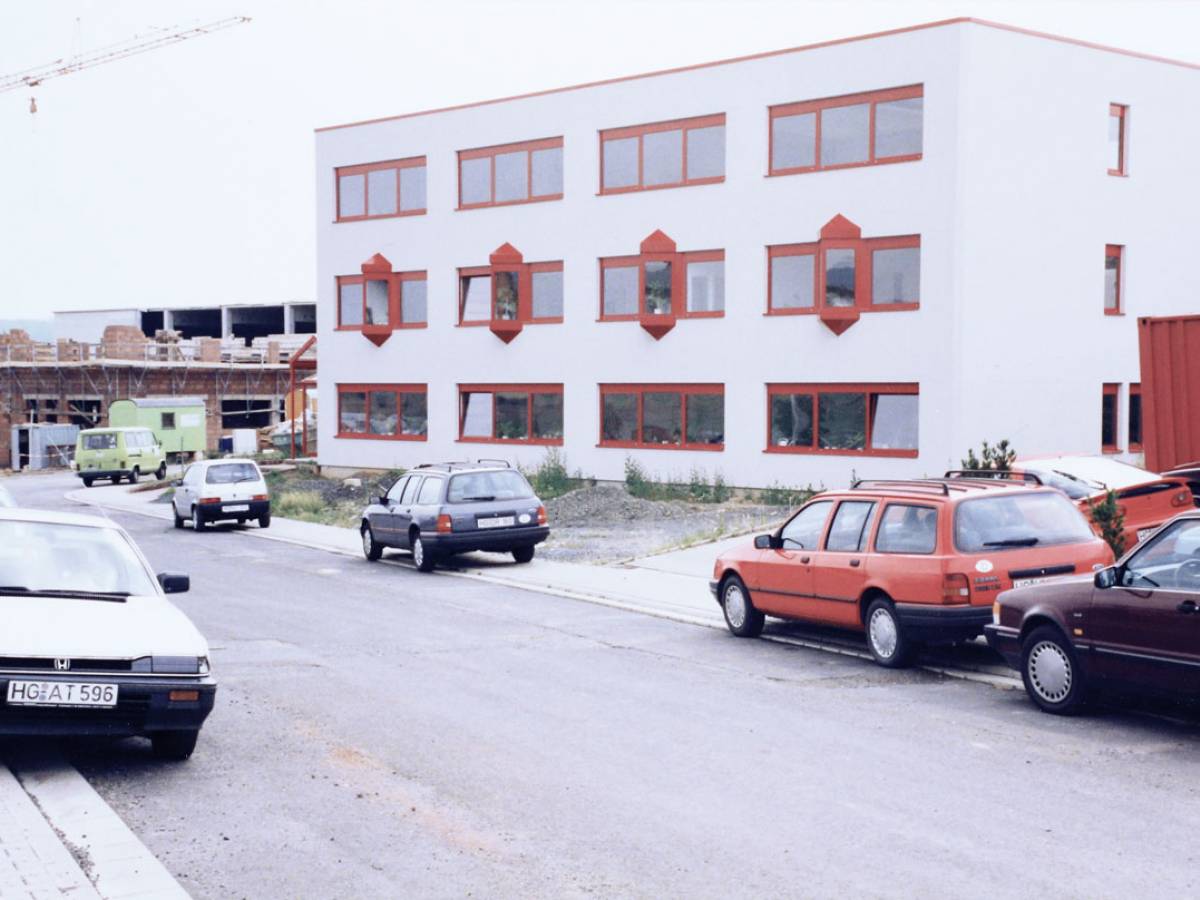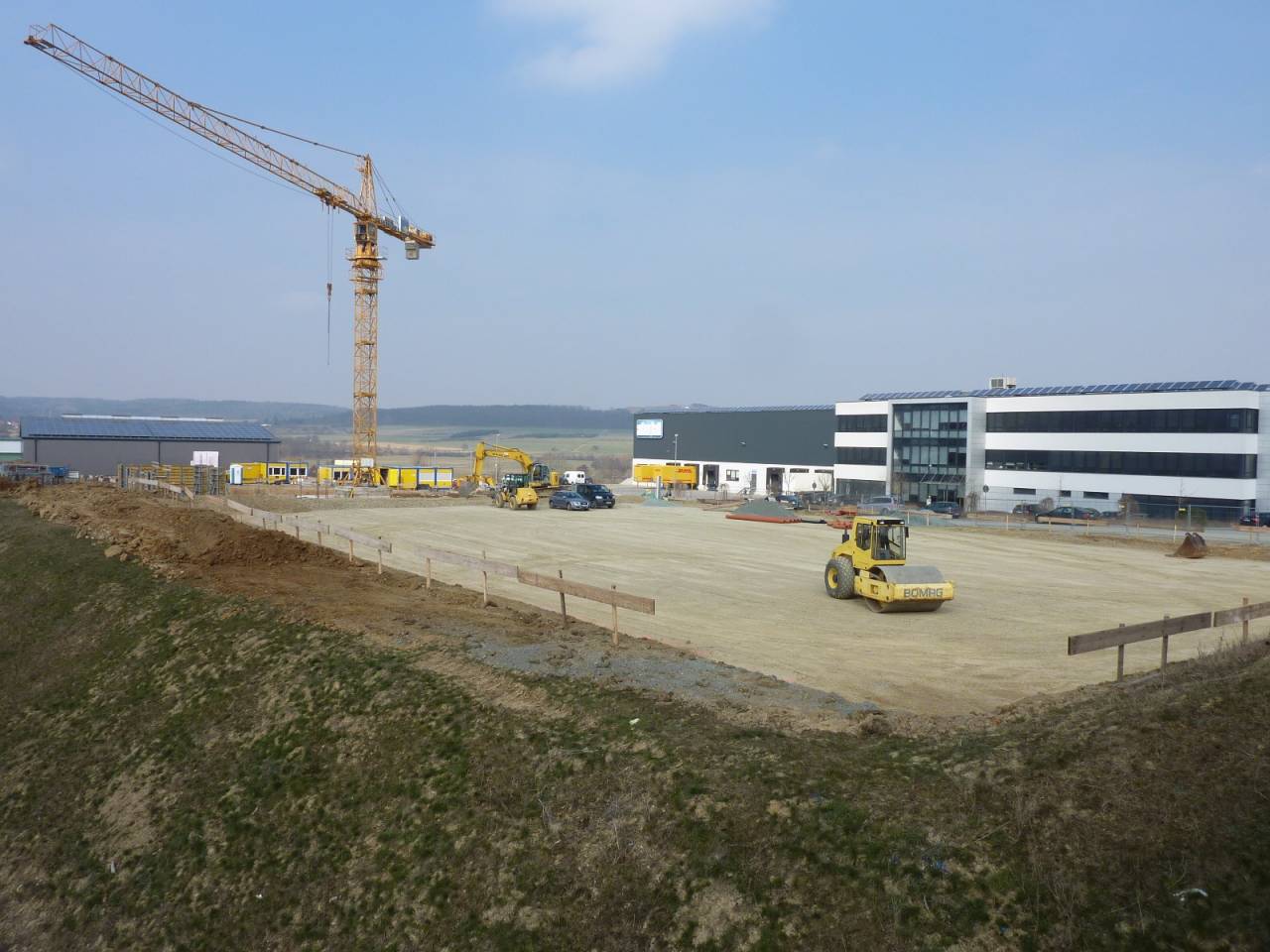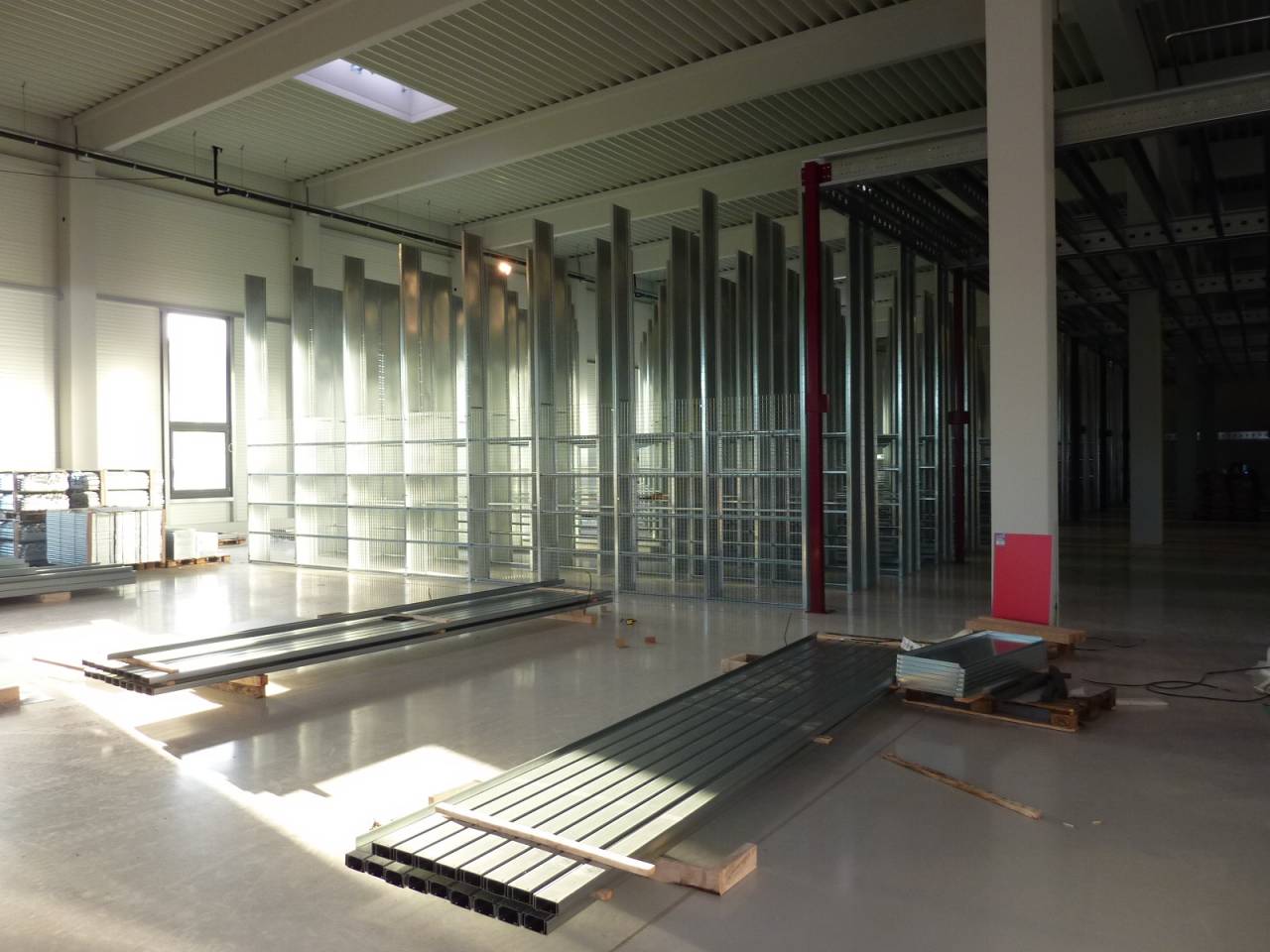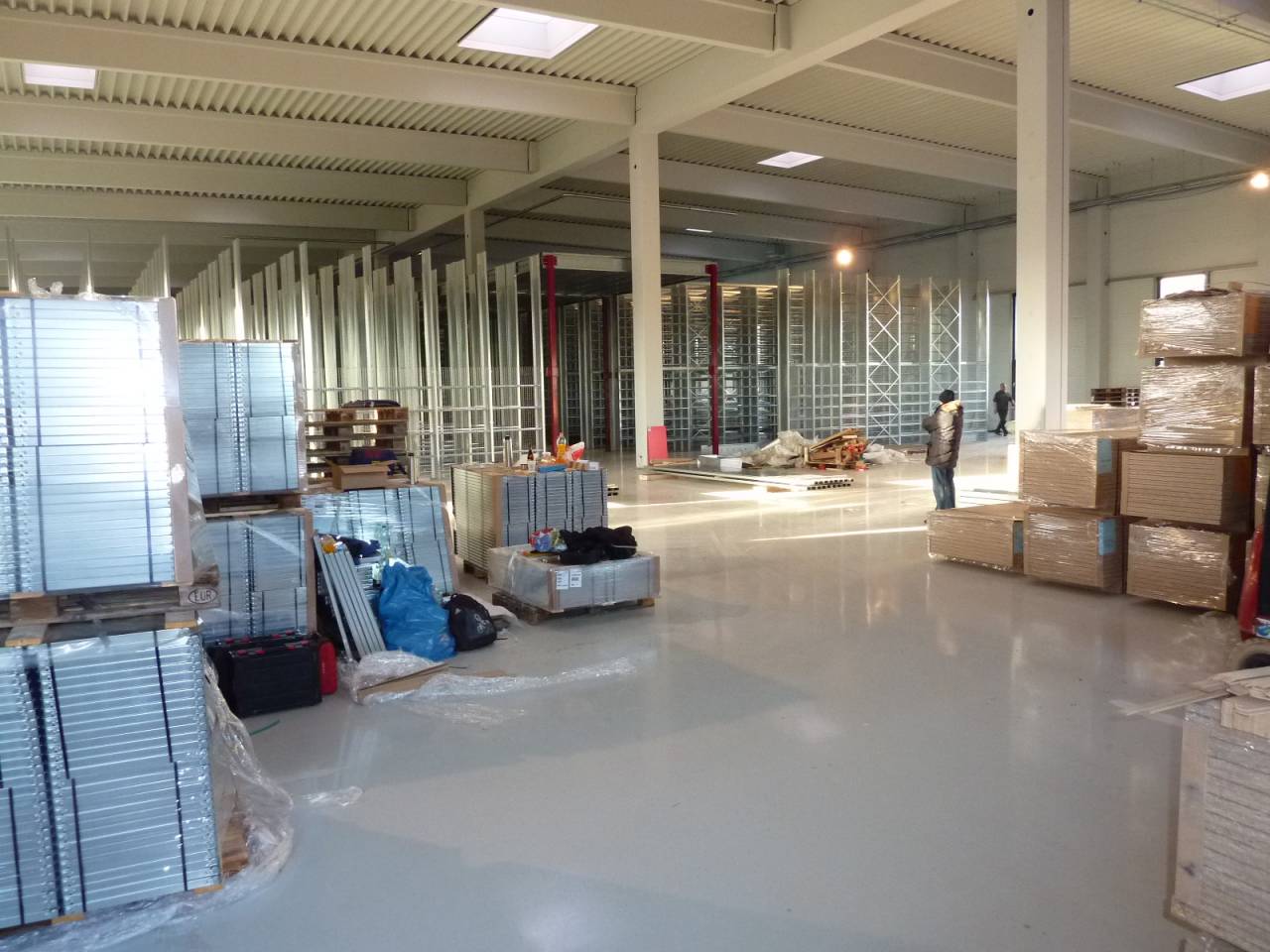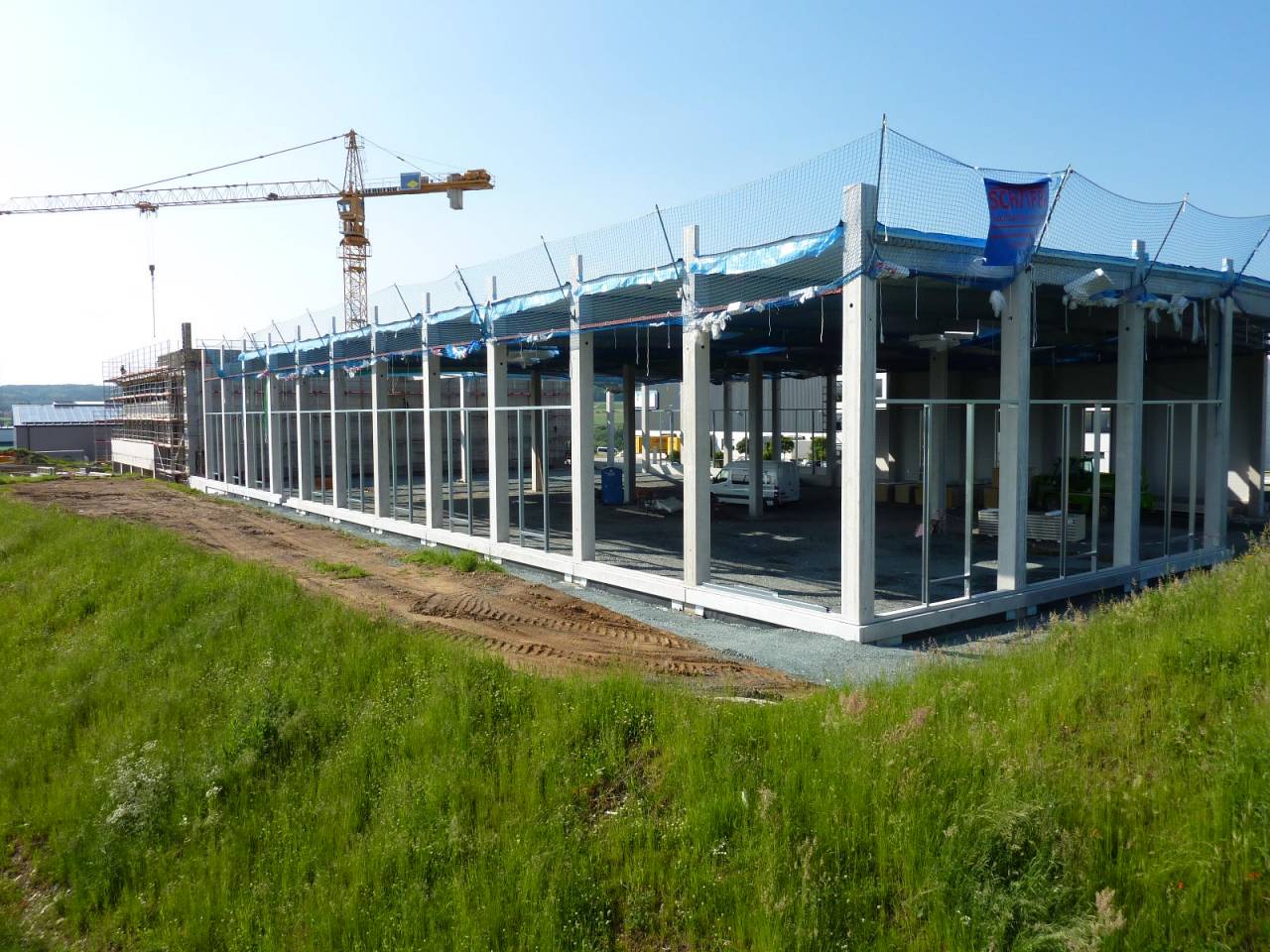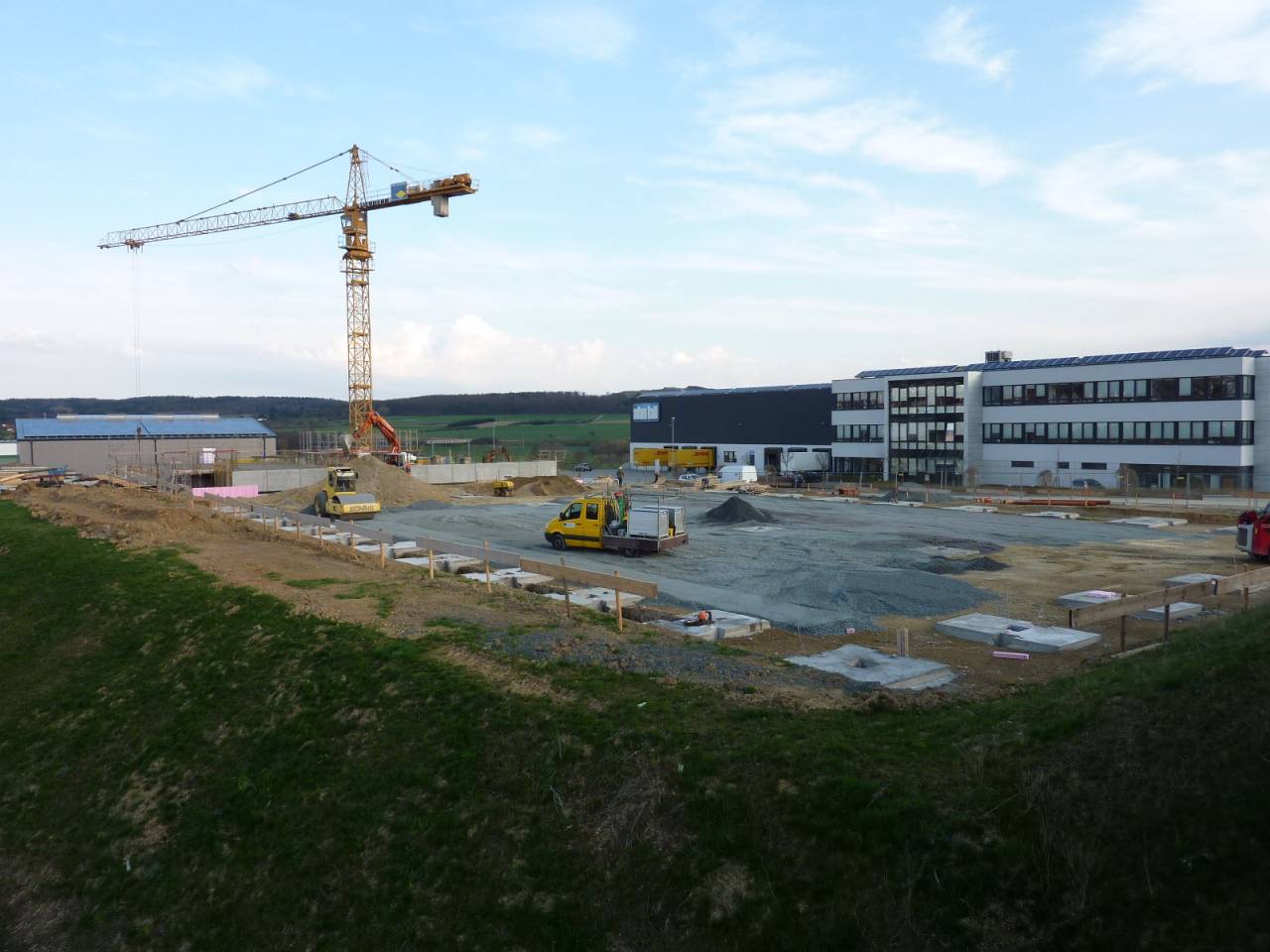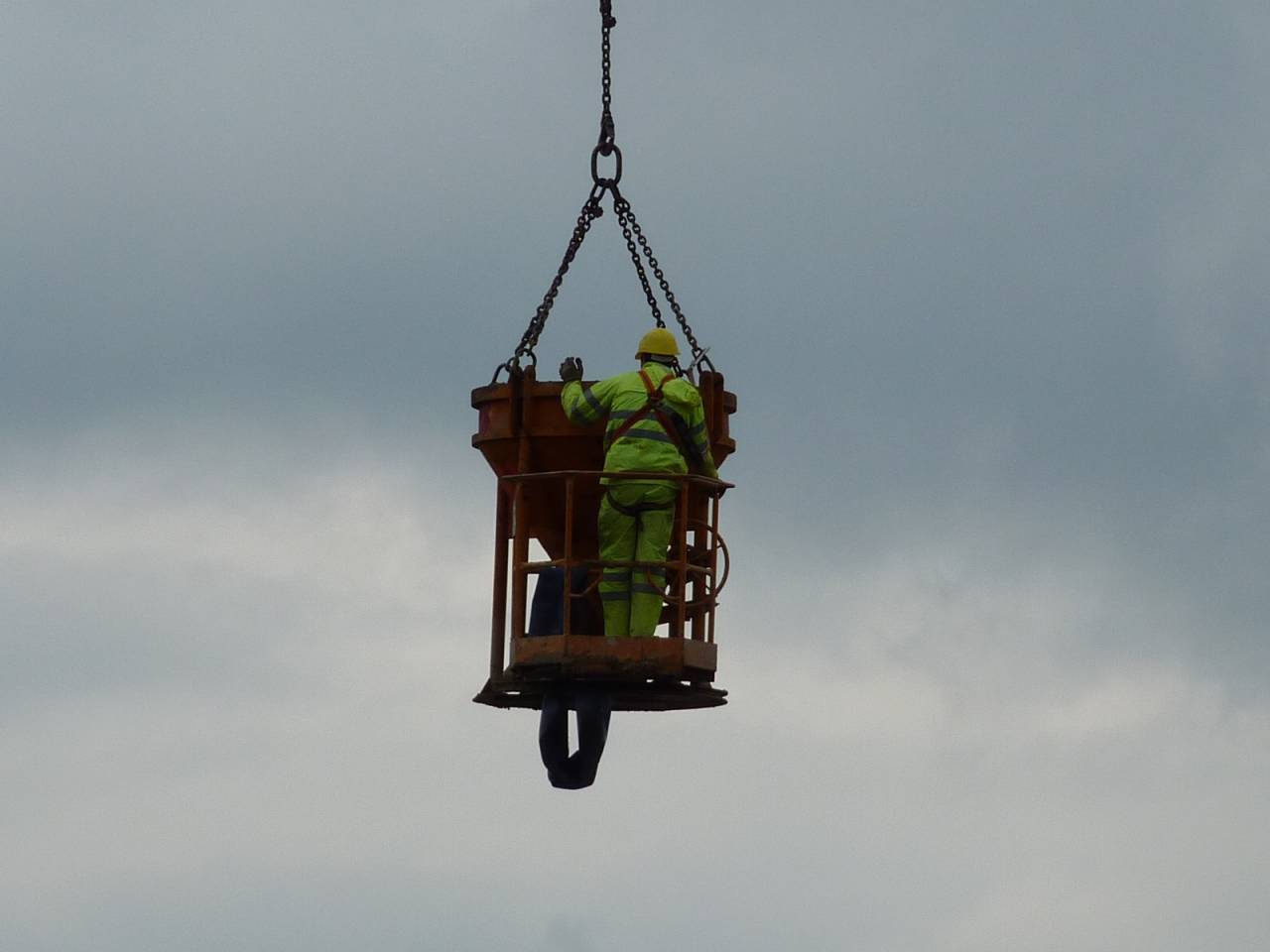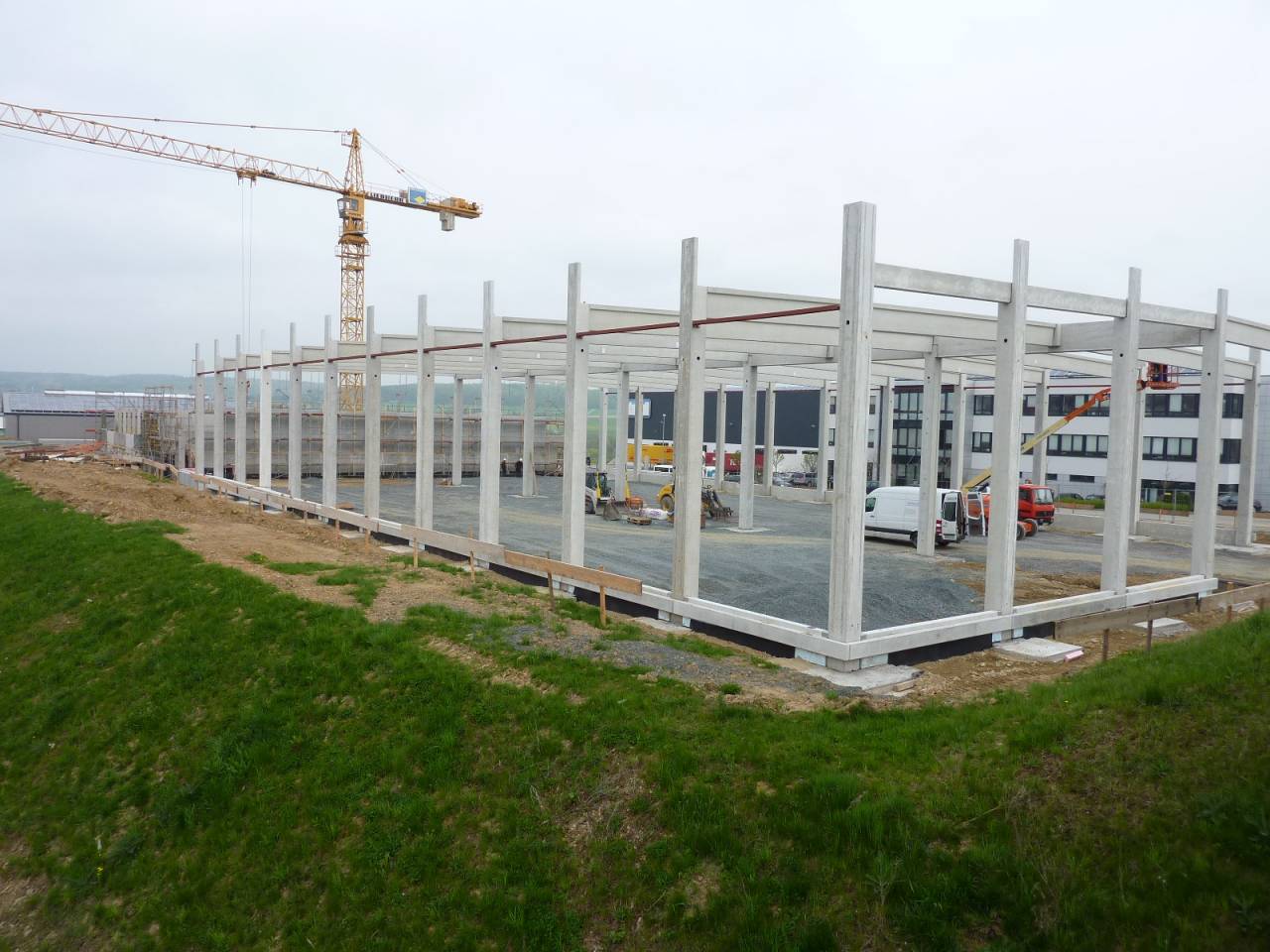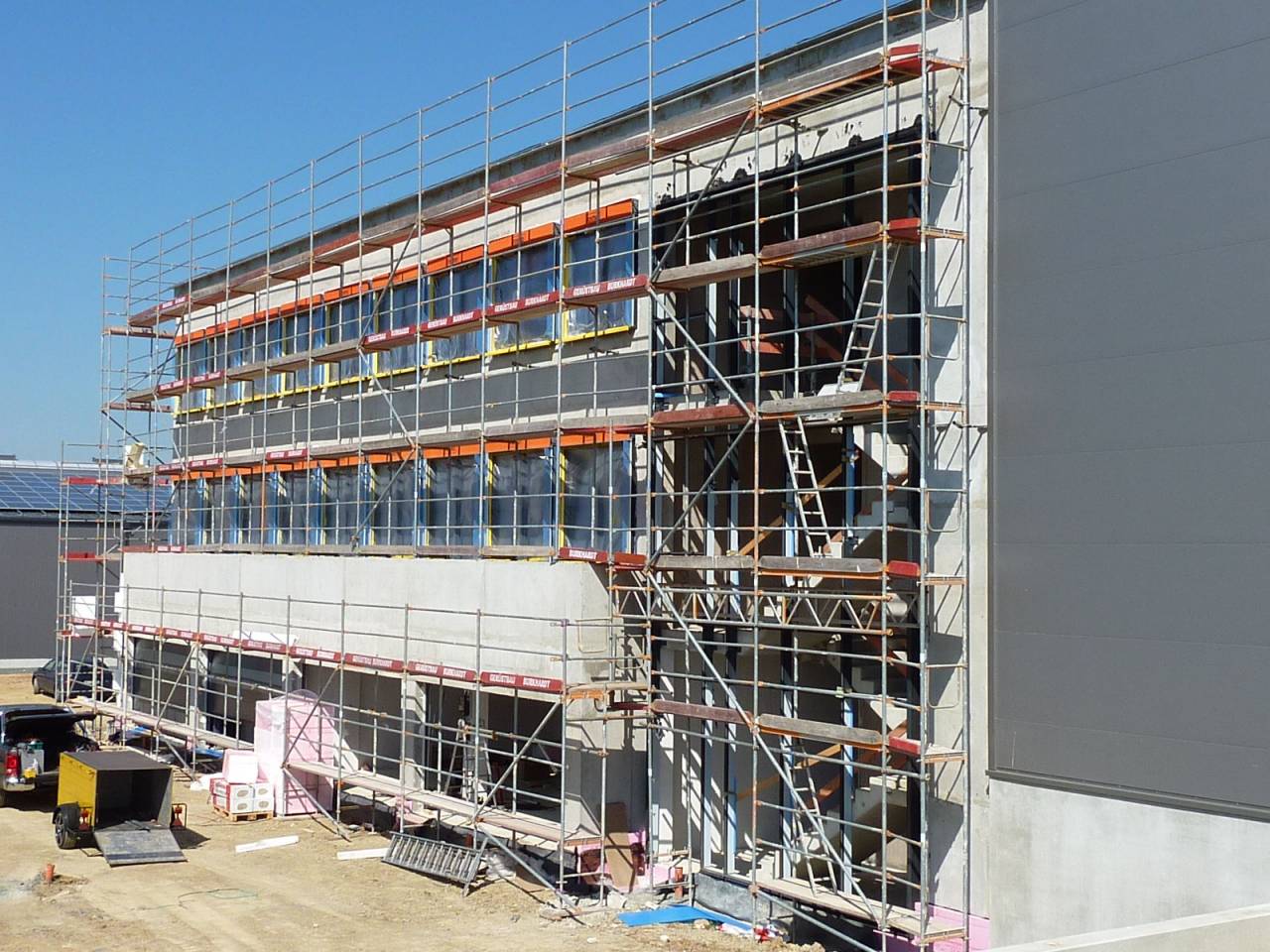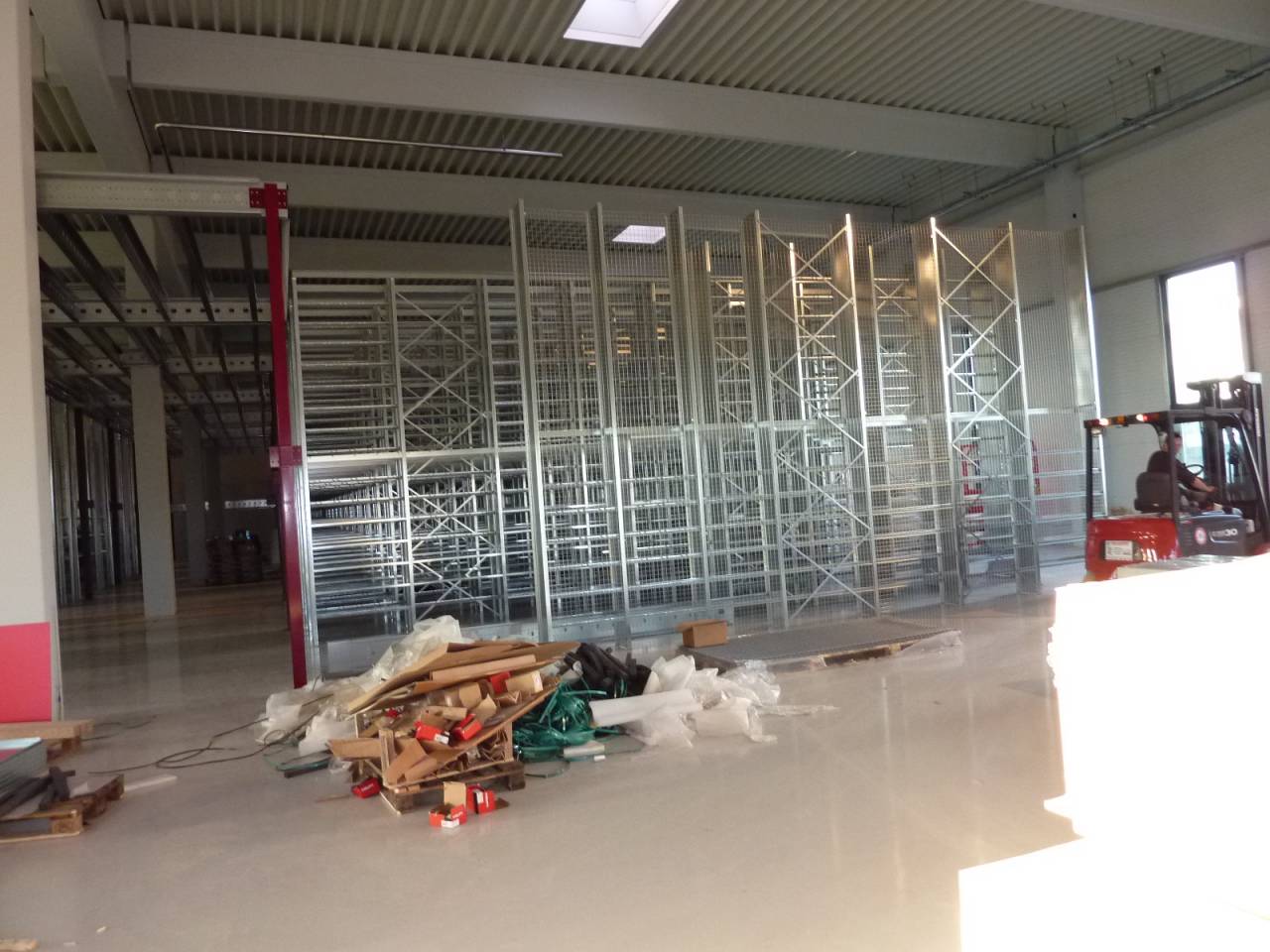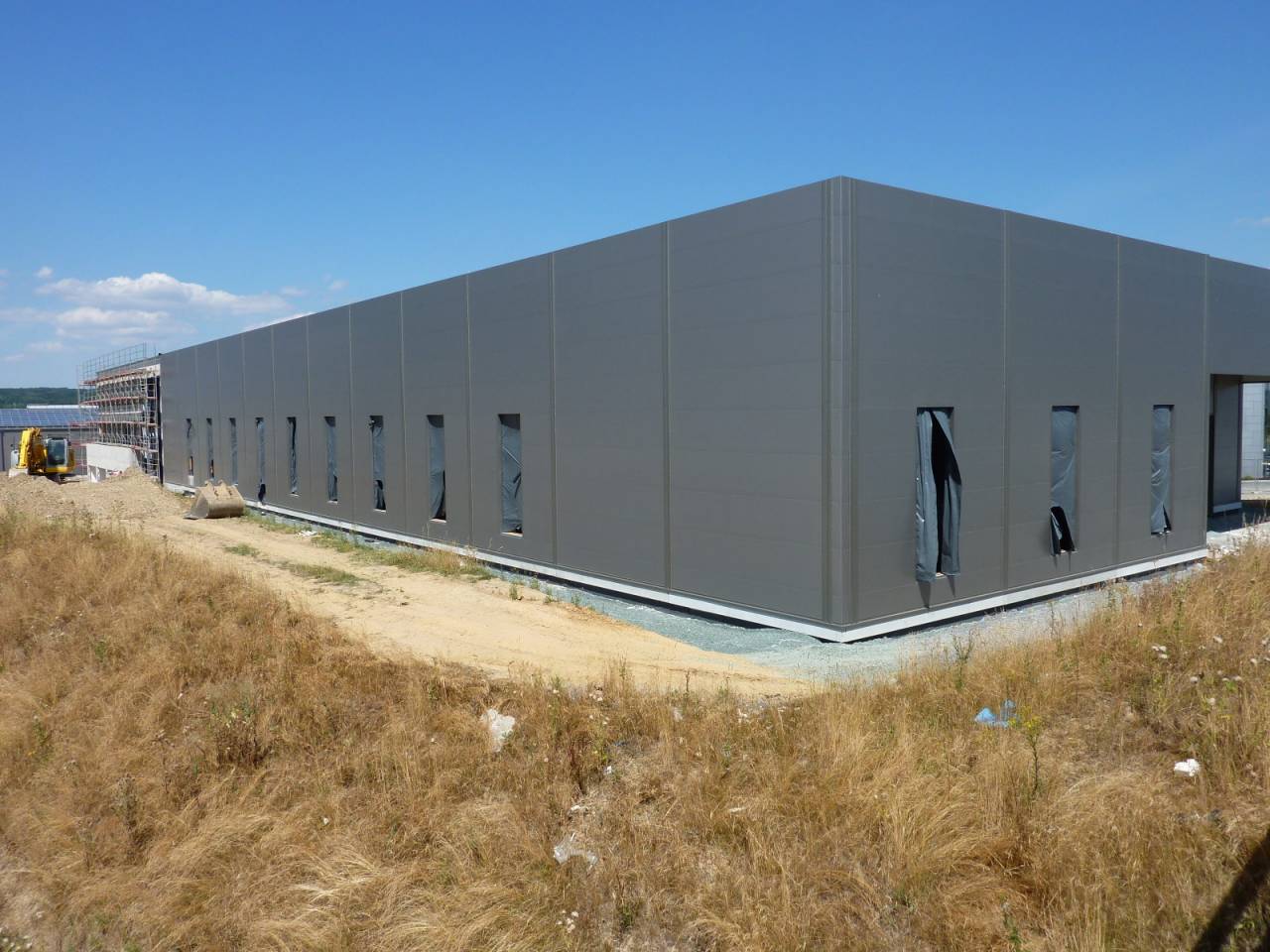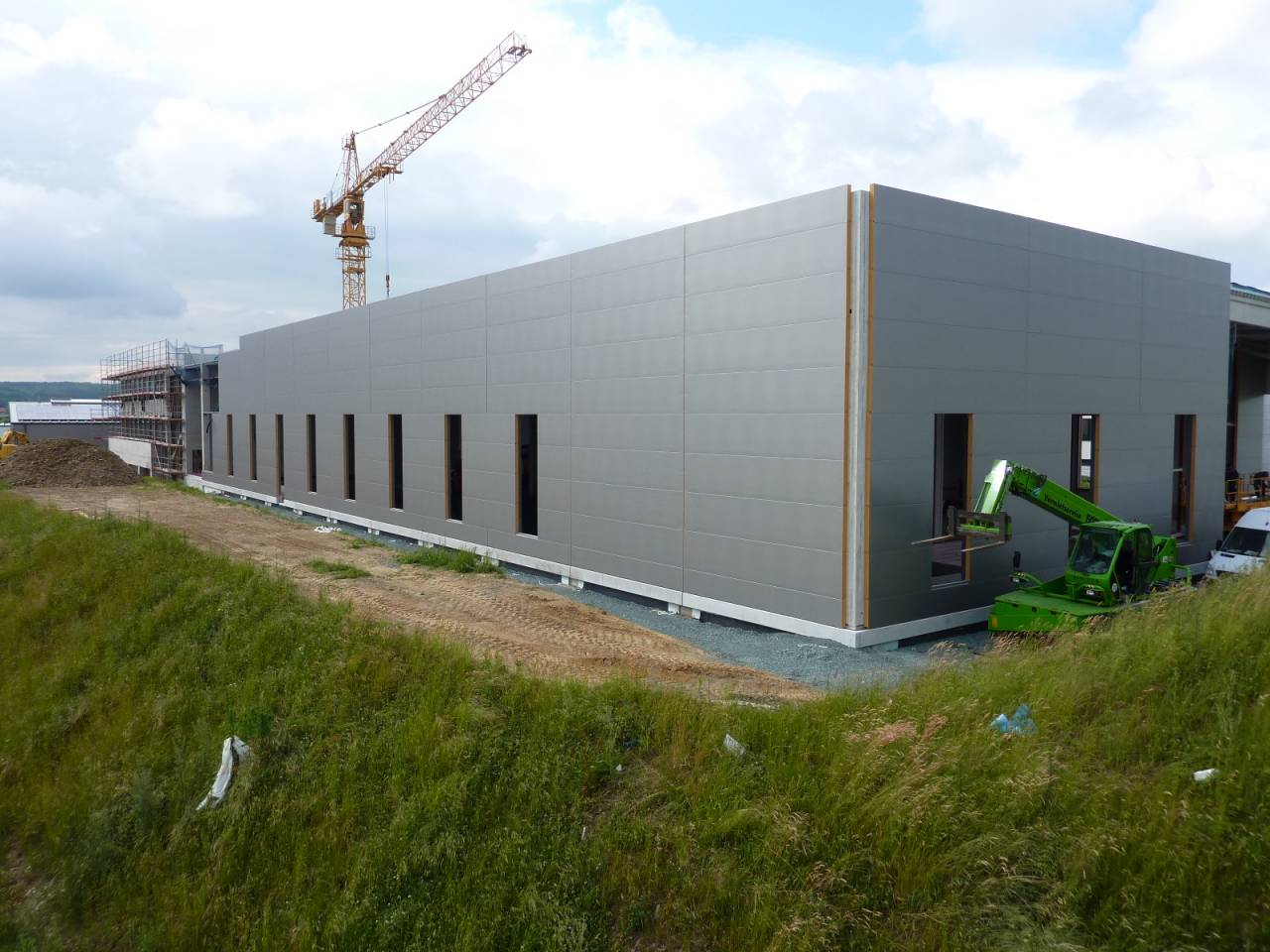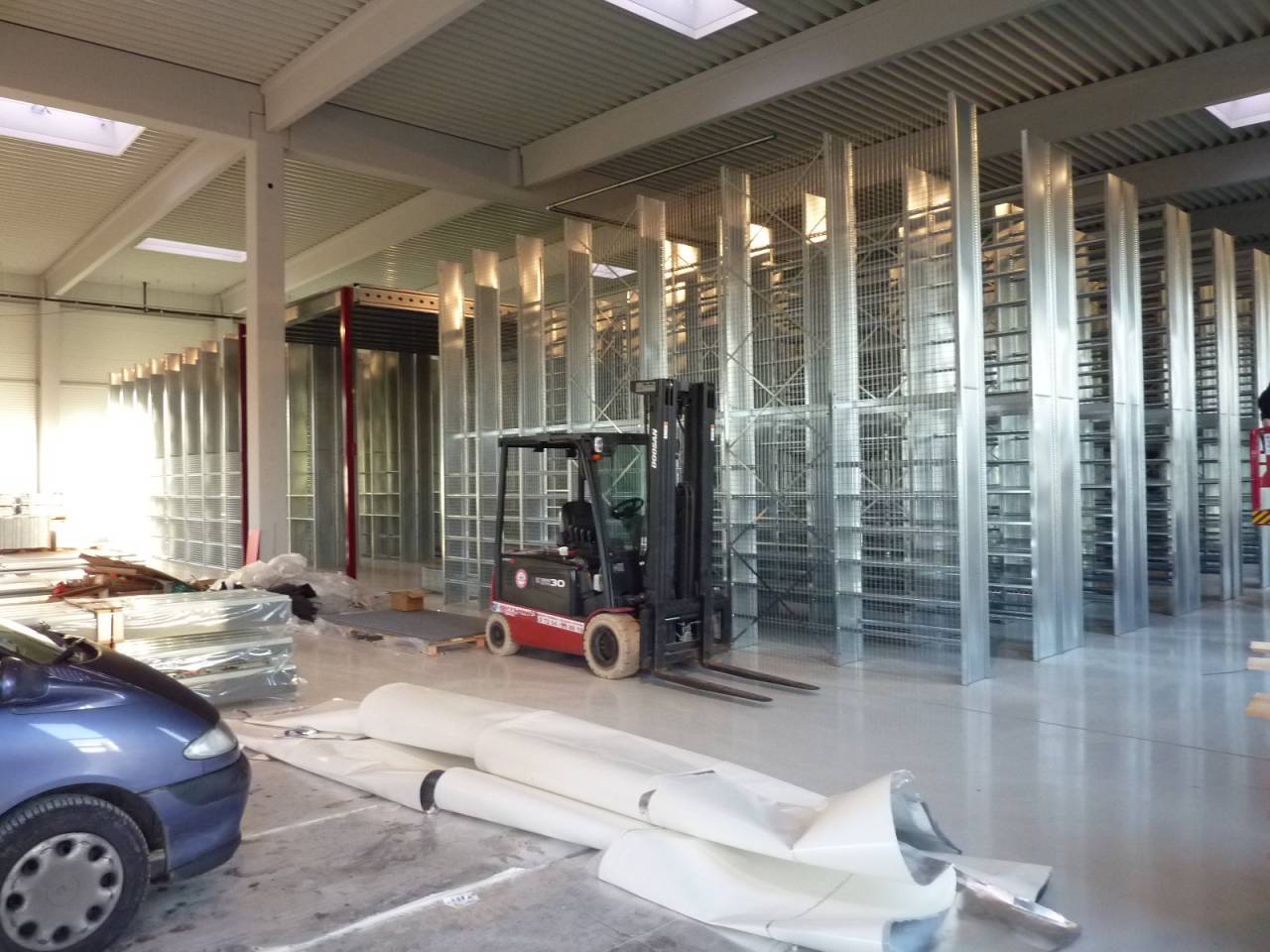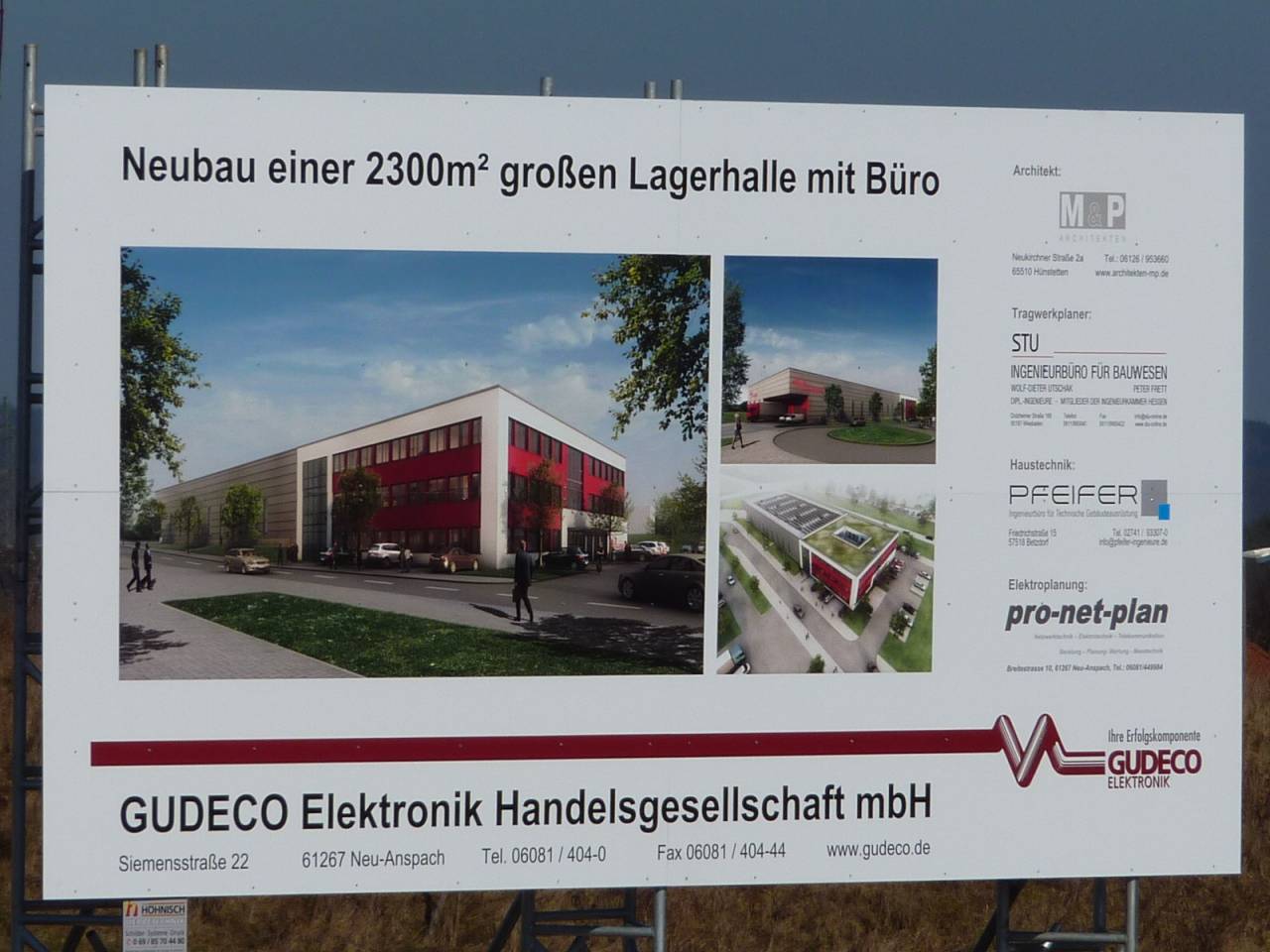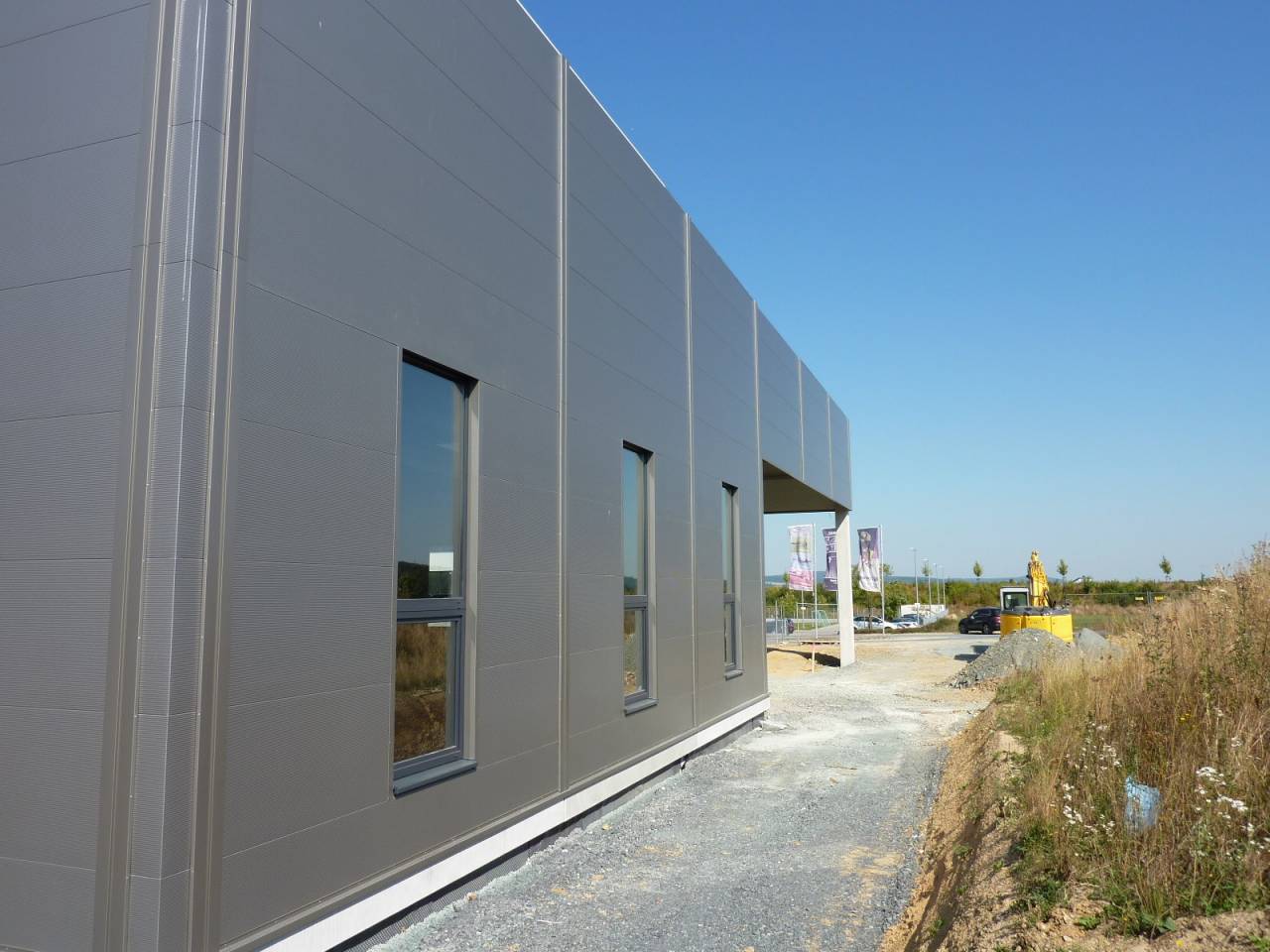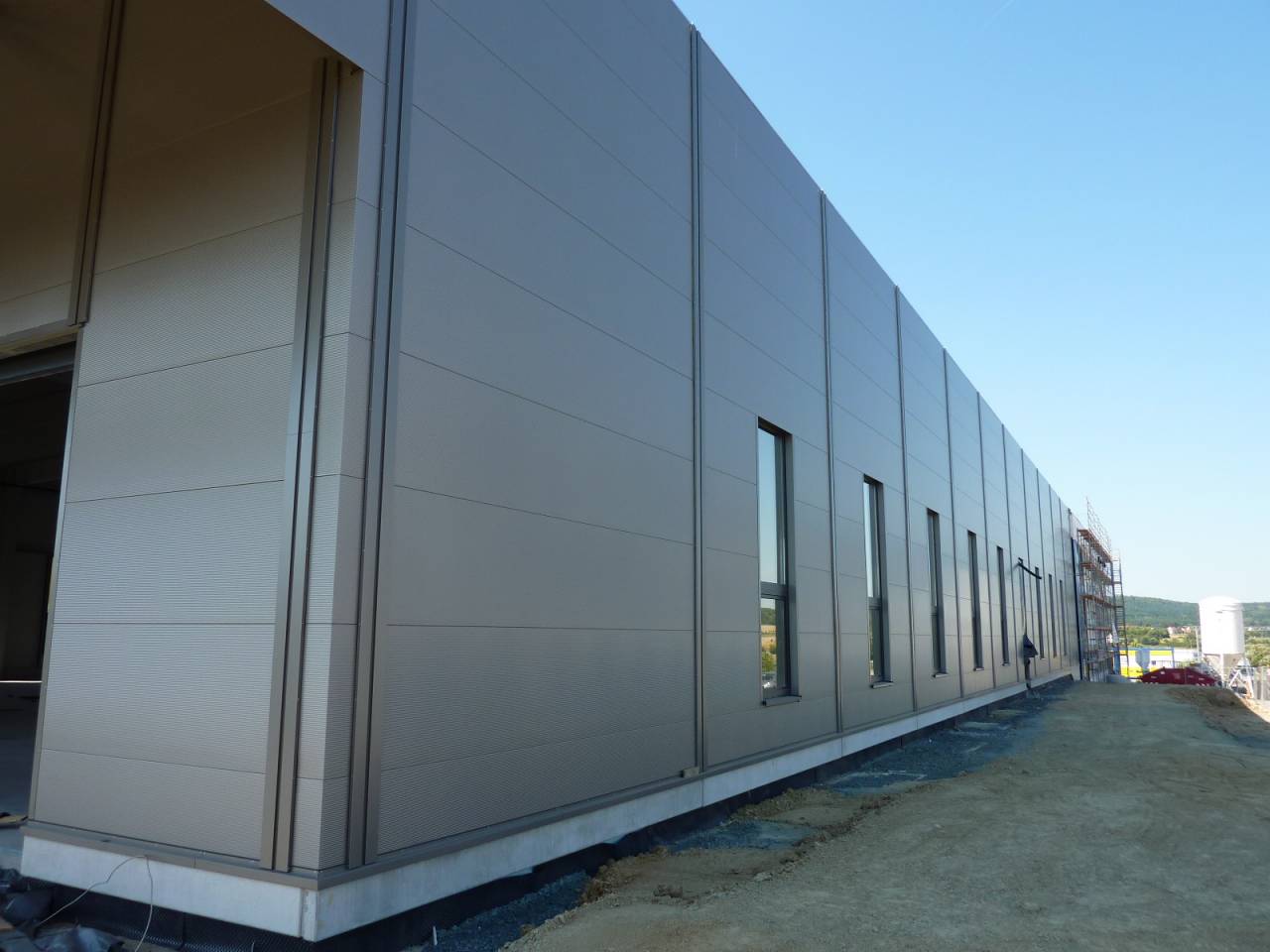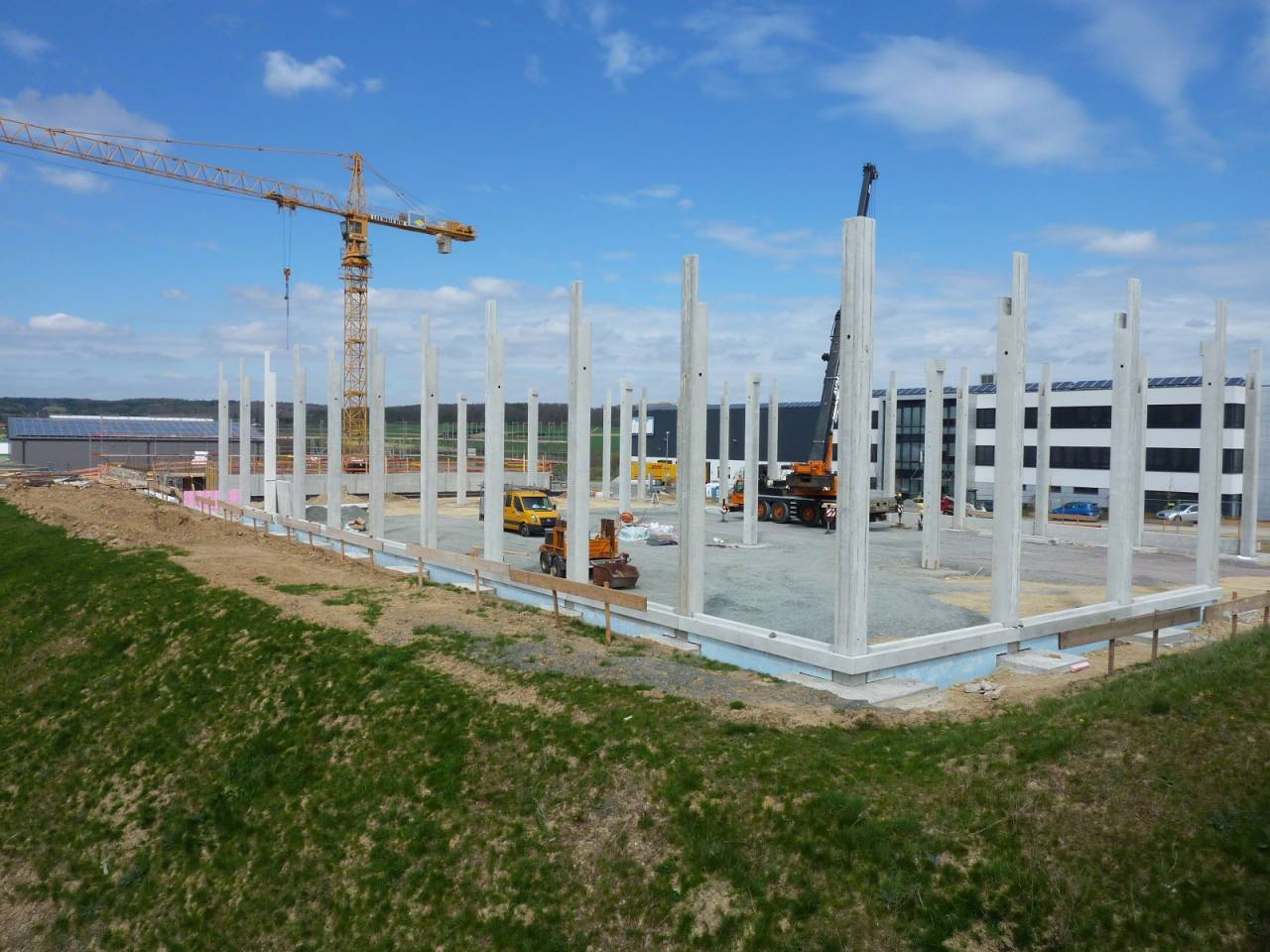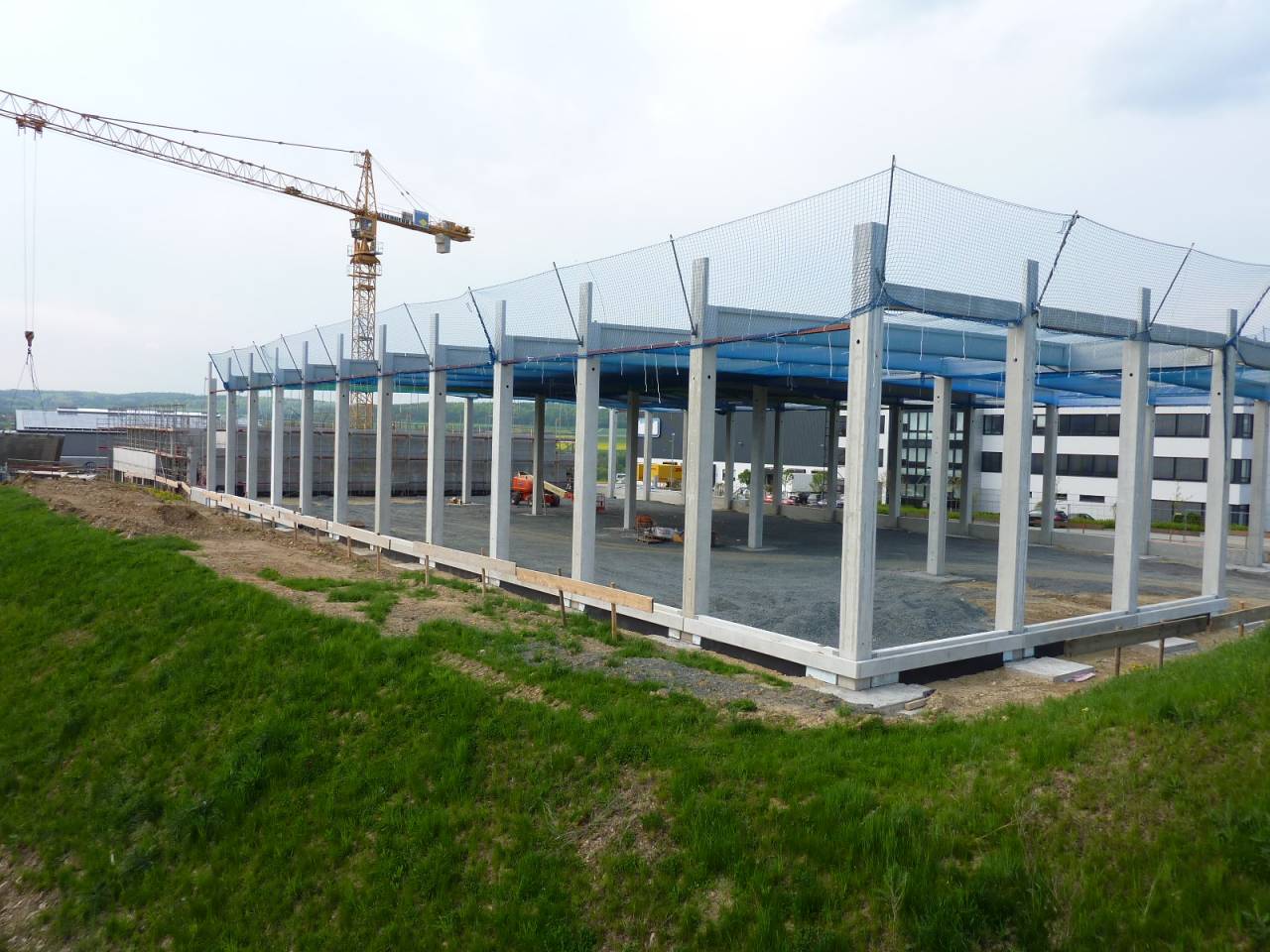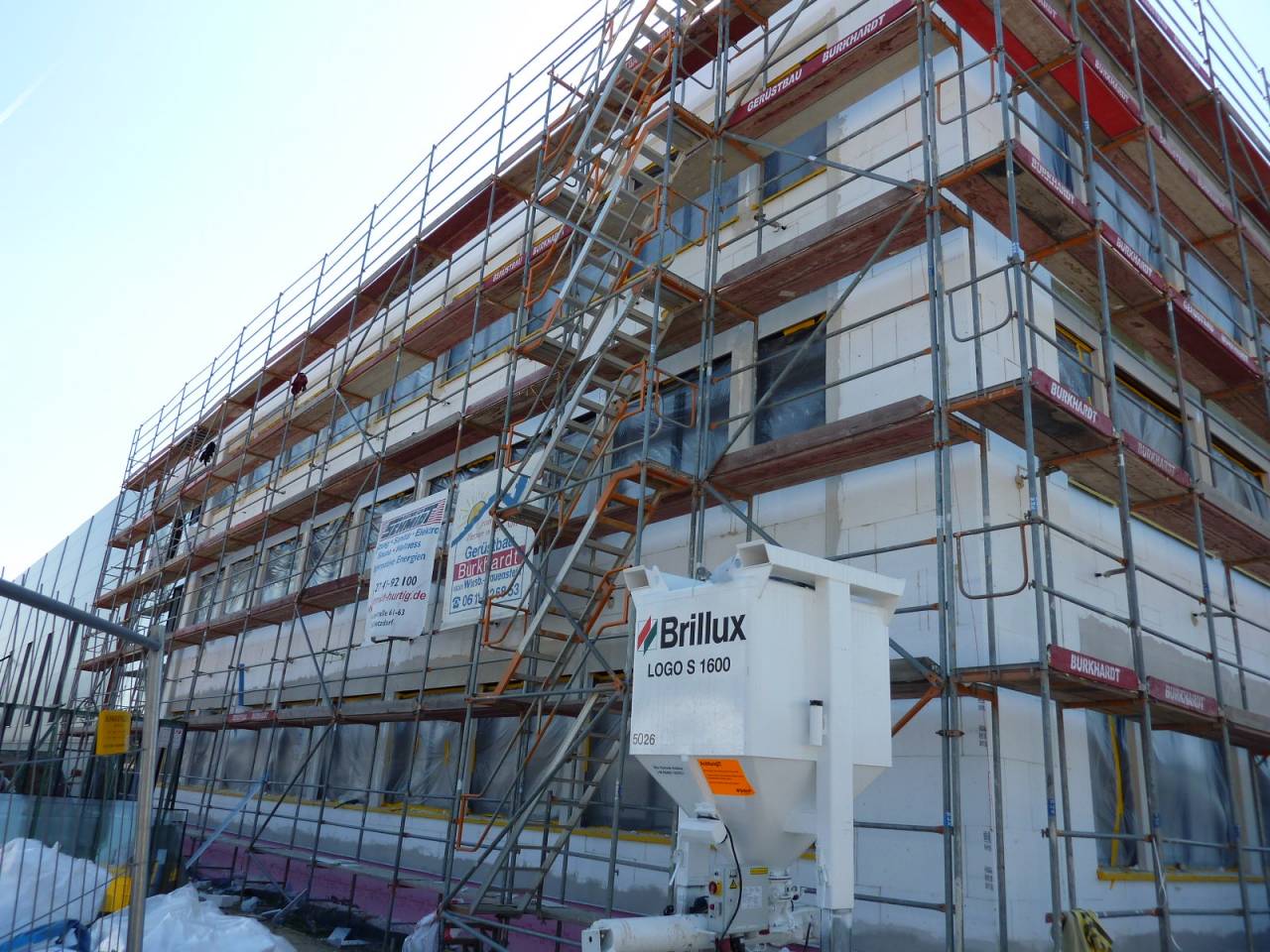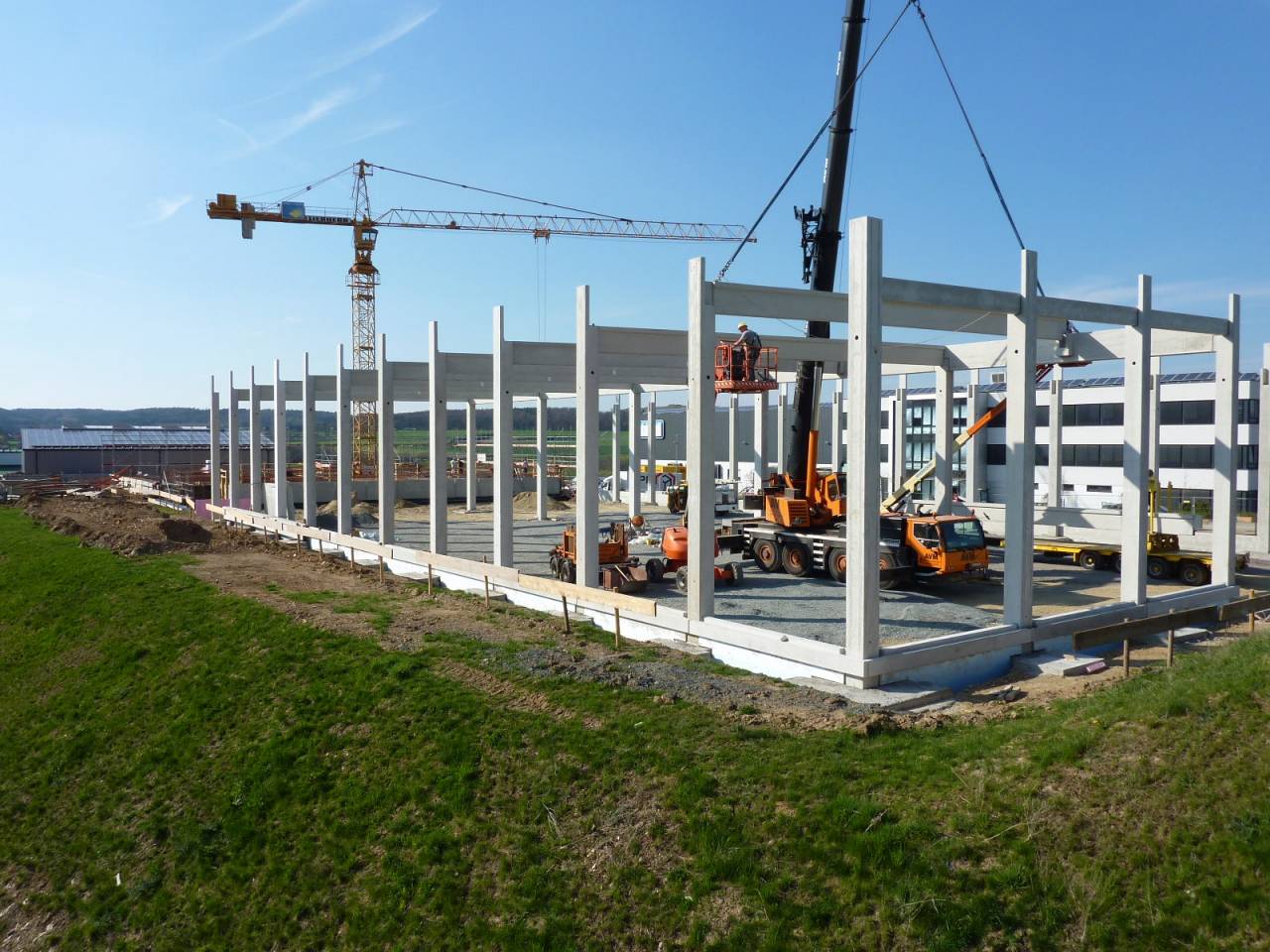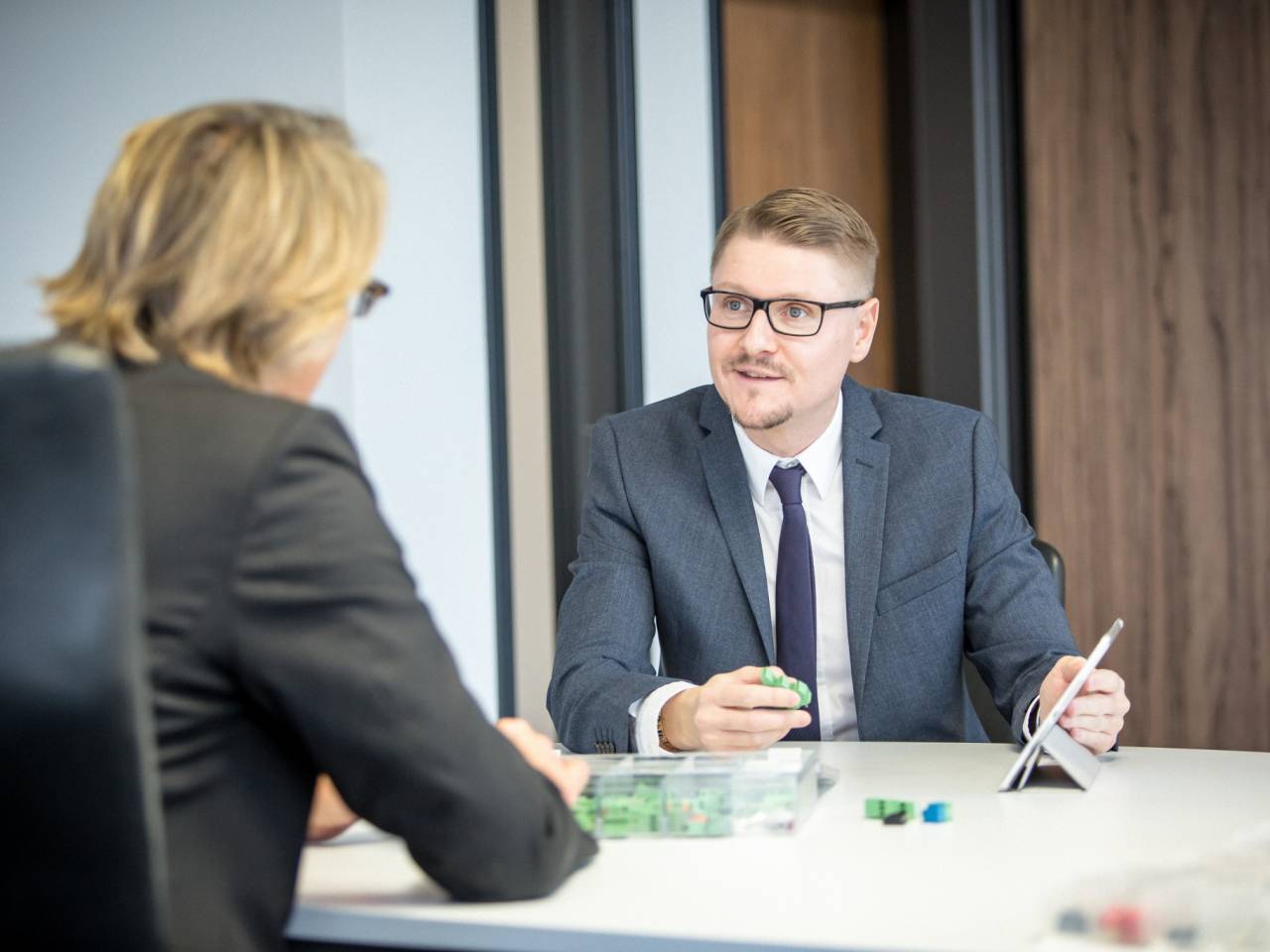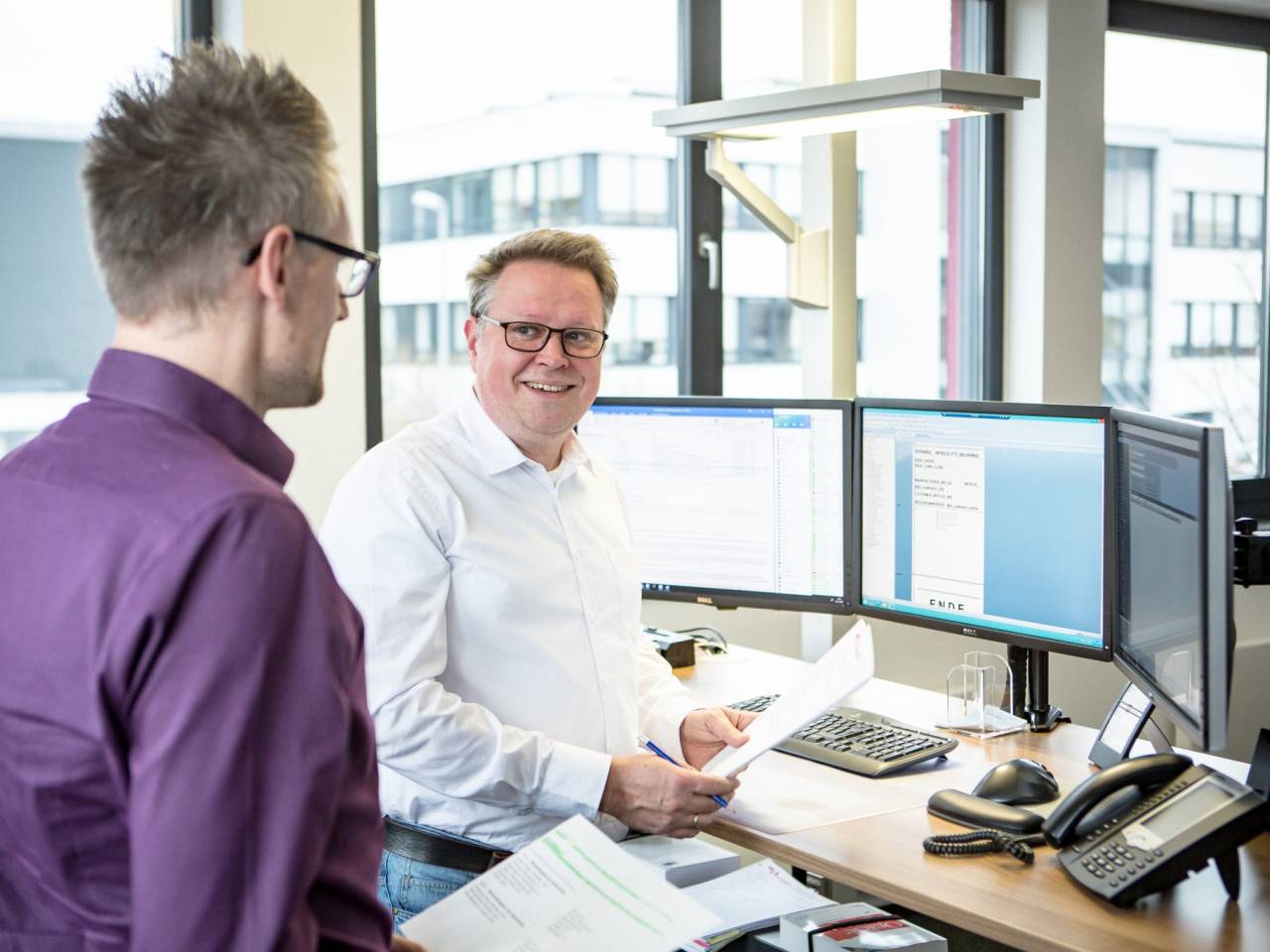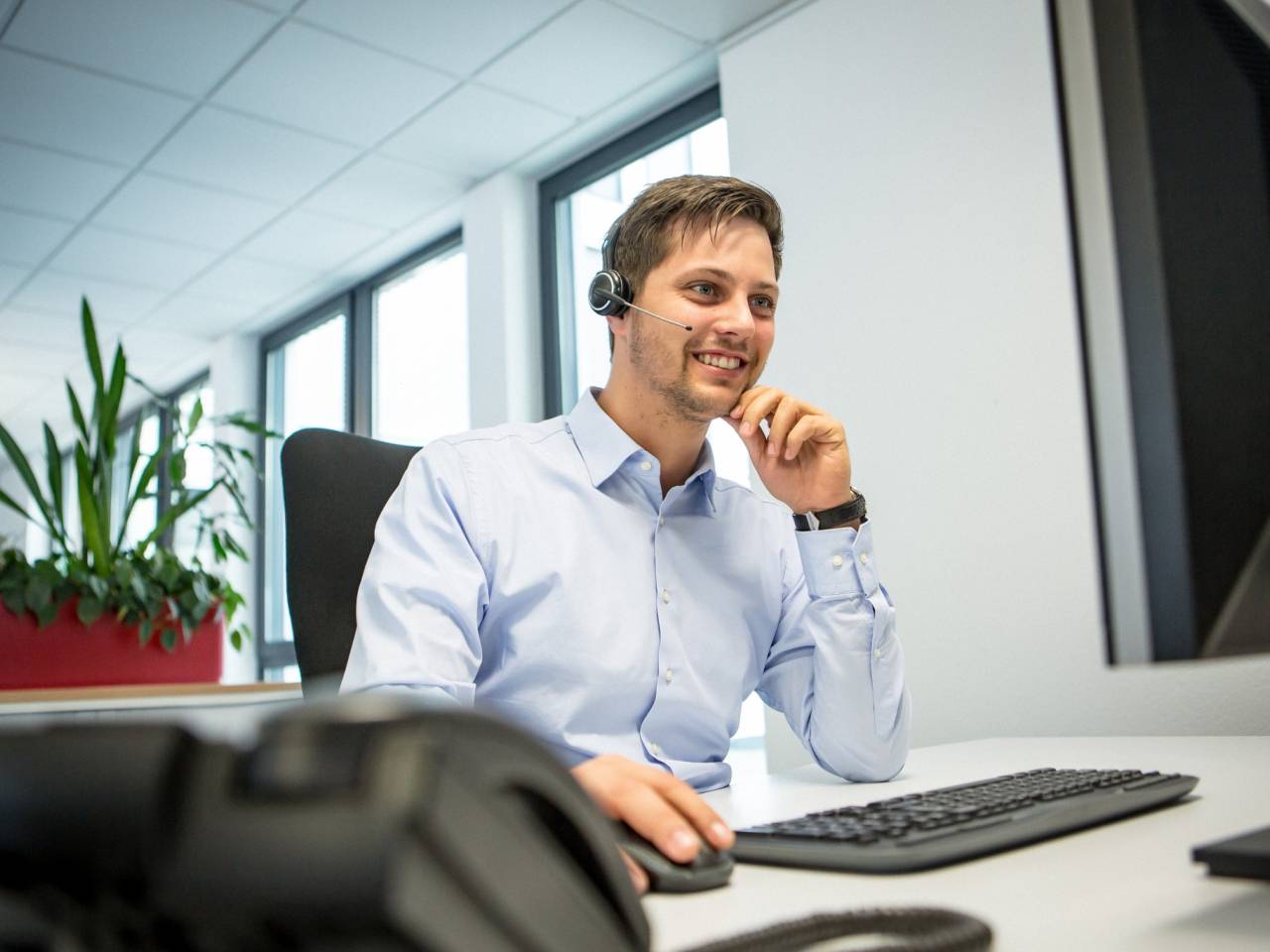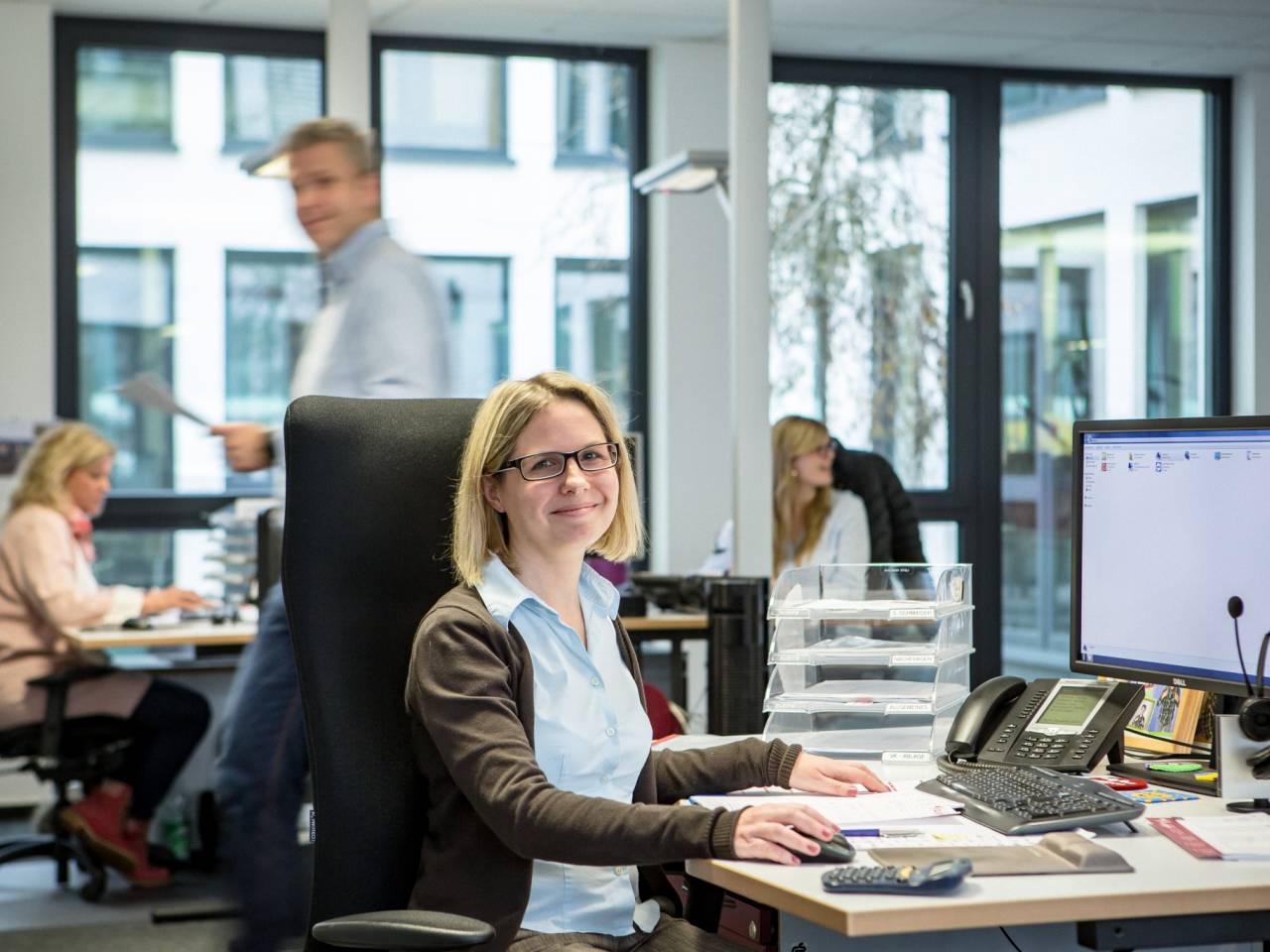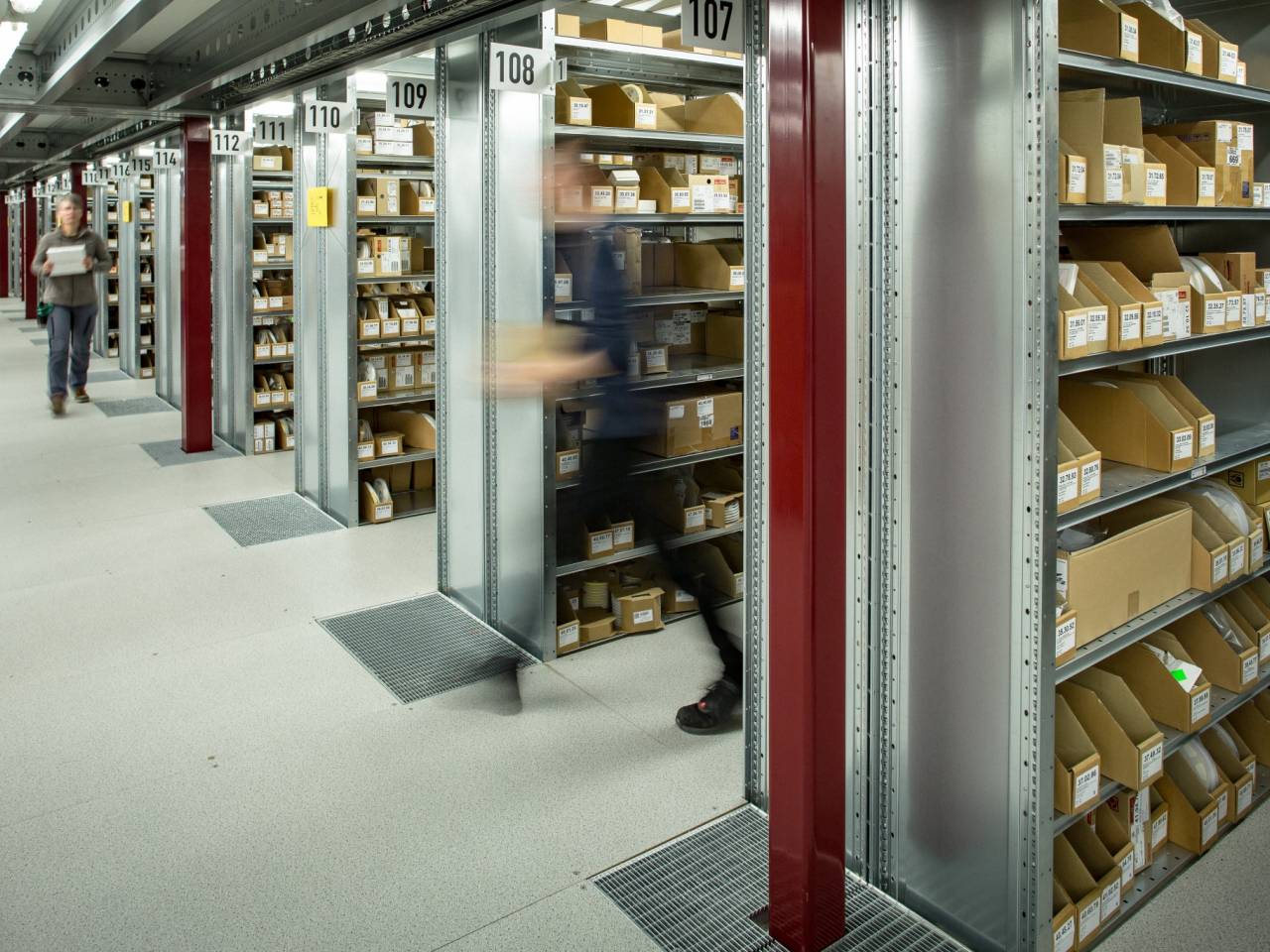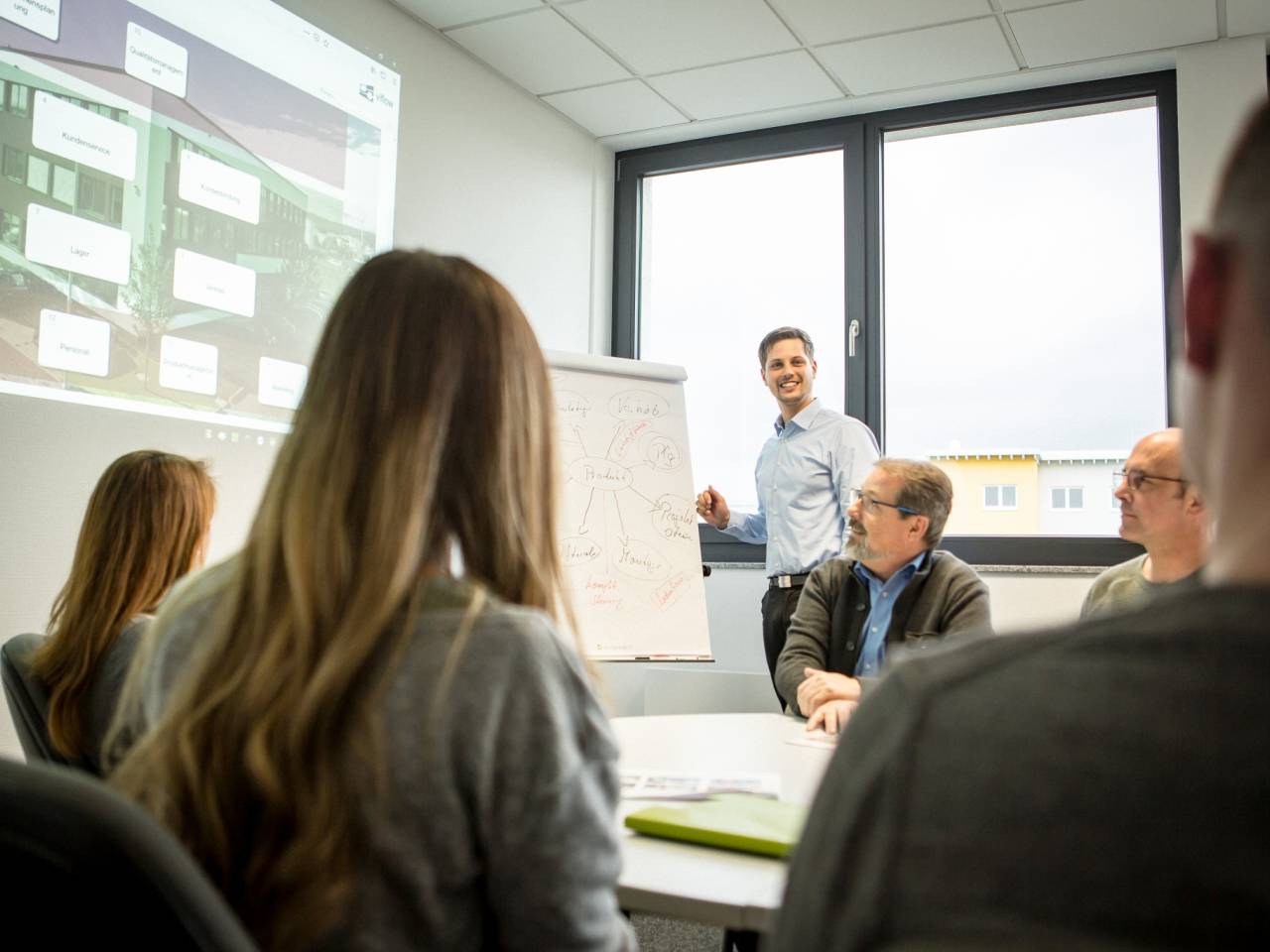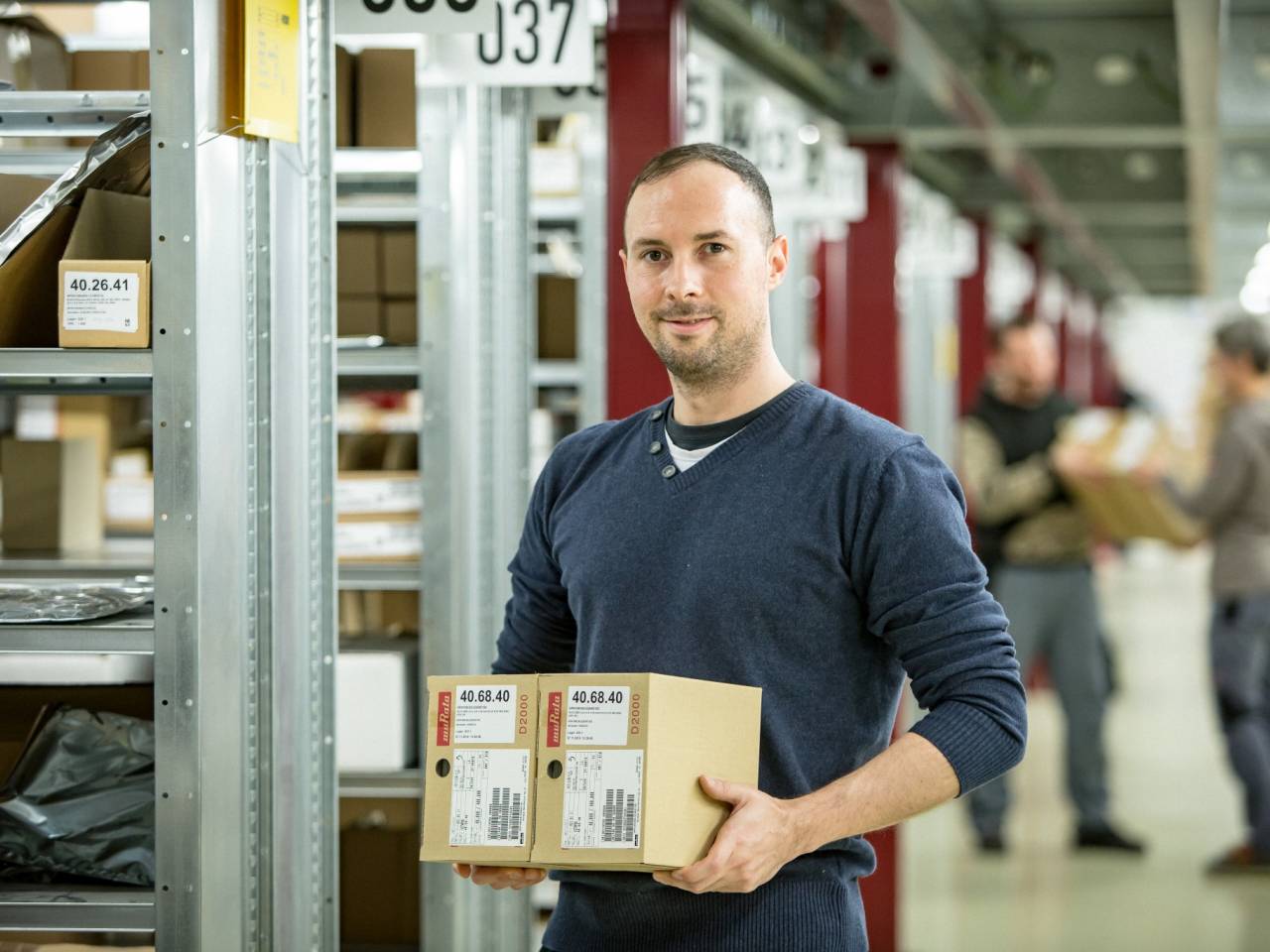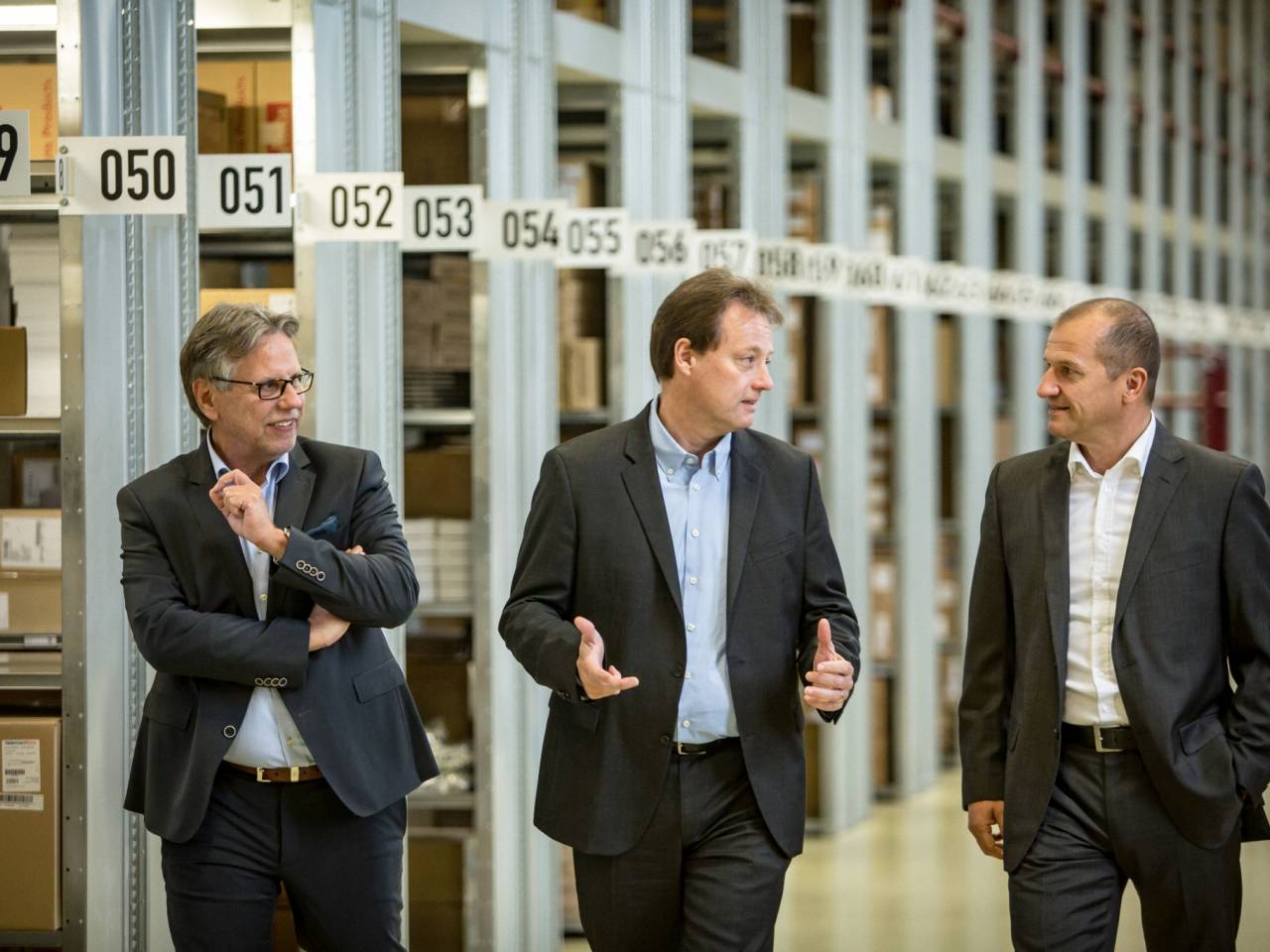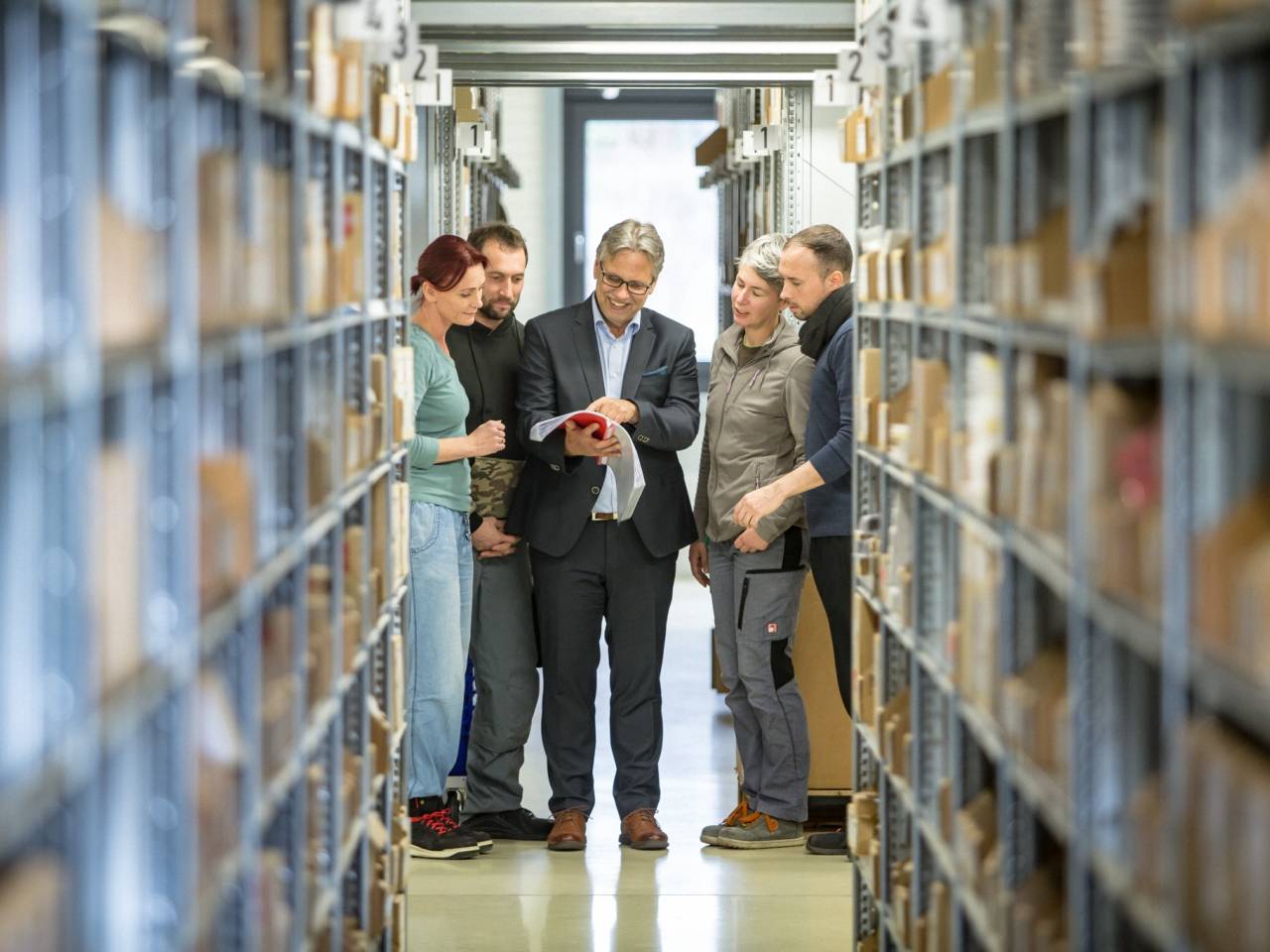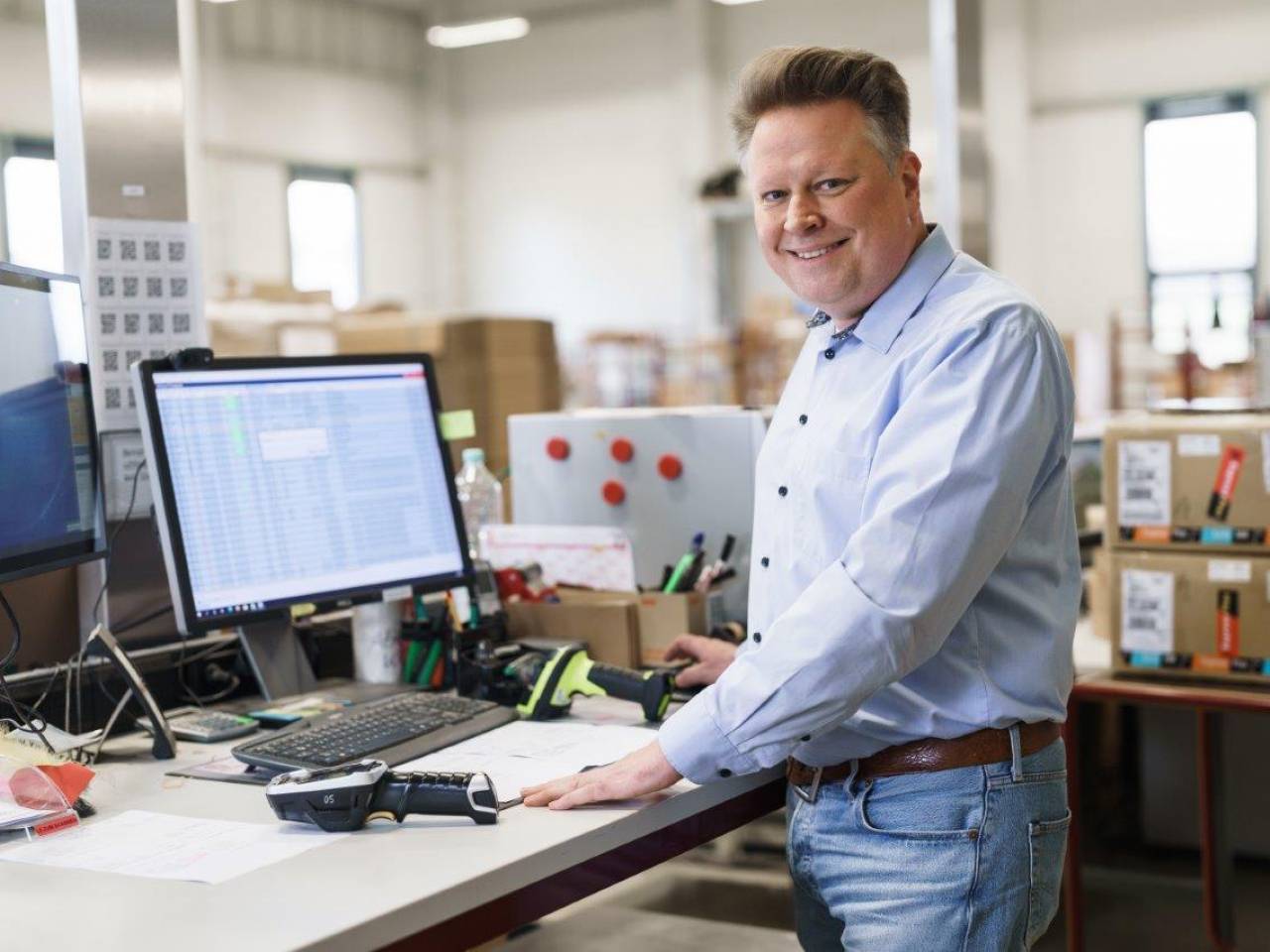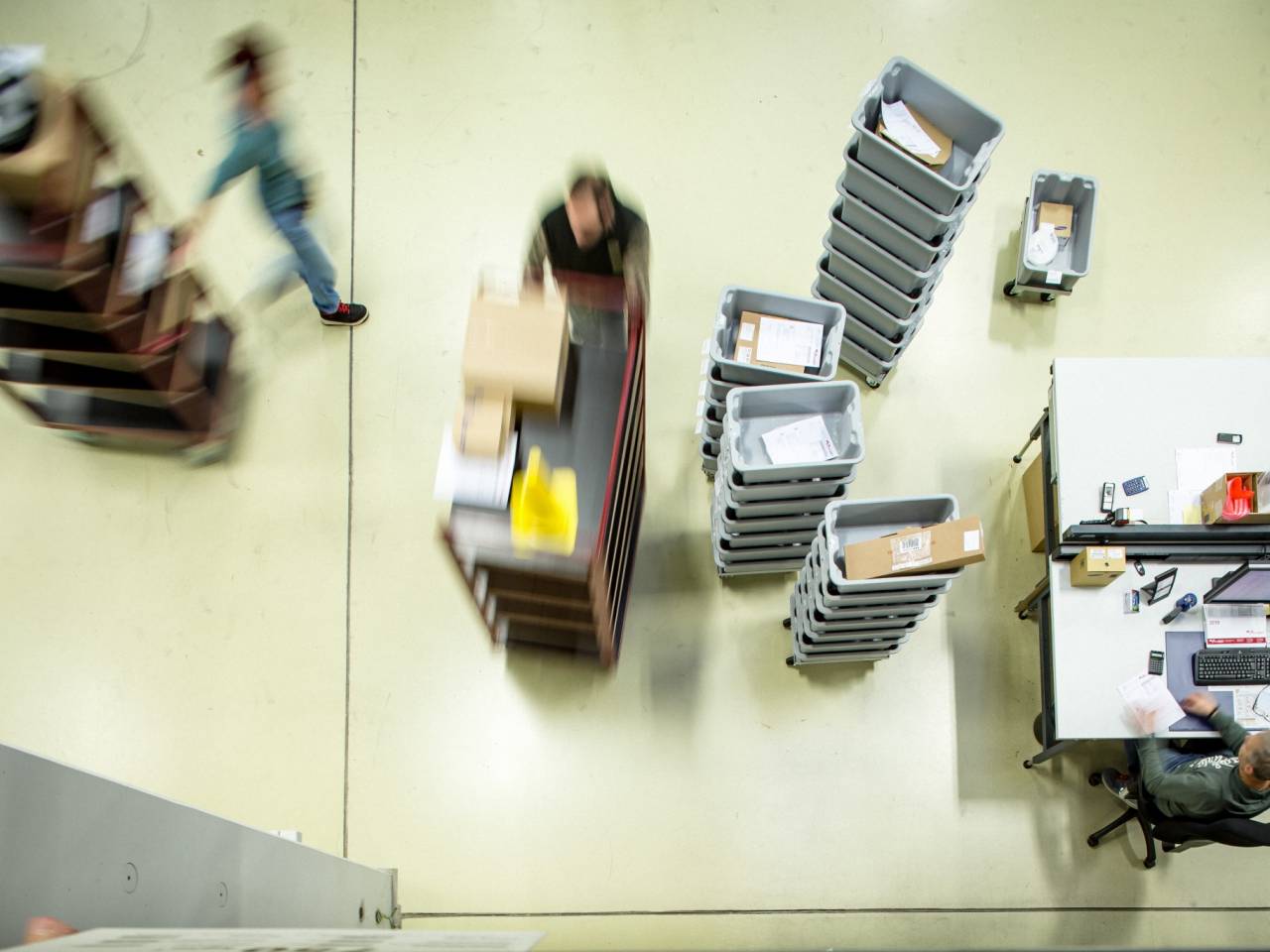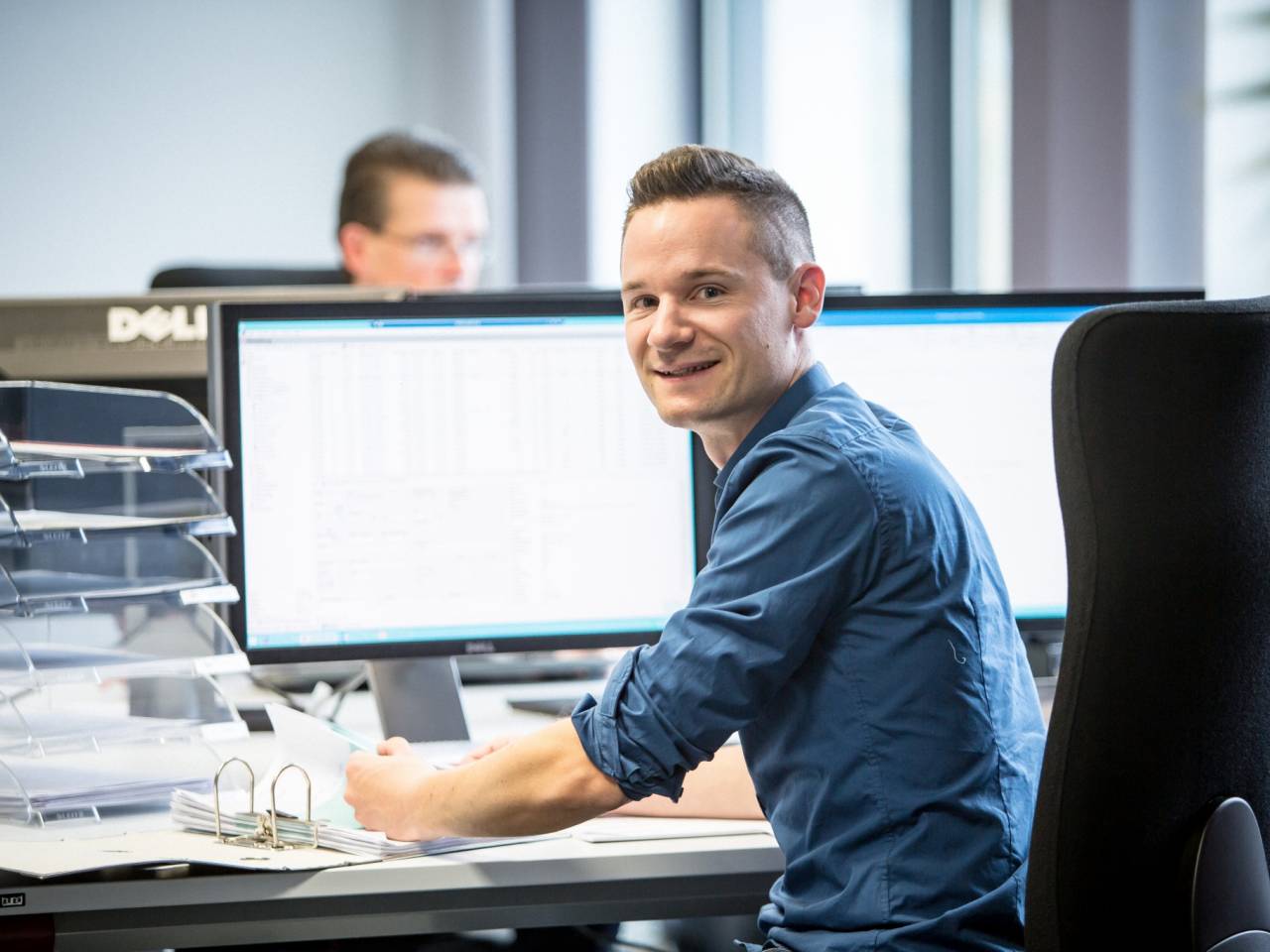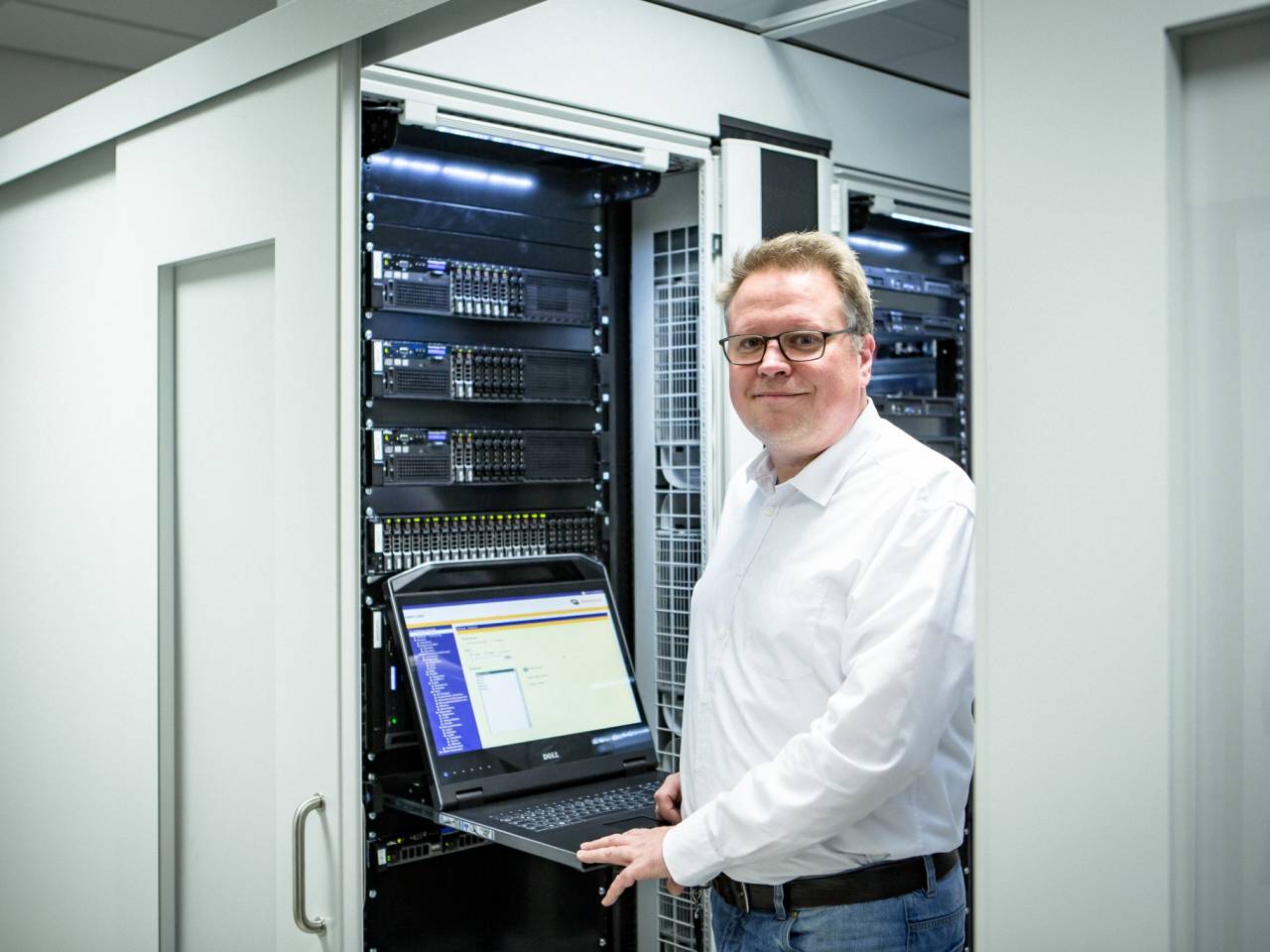+15,000 products . 100% products can be ordered online . 24h delivery | Tel.: +49 6081 404-0 (MON to THU 9 am - 1 pm) | info@gudeco.de
Journey through time
GUDECO history
IM ÜBERBLICK:
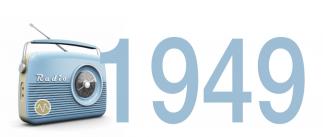
A schoolboy job in post-war Frankfurt
I returned to my hometown of Frankfurt in 1949 as an 11-year-old boy after being evacuated from Bad Nauheim due to the war. After the building contractor went bankrupt, an unfinished rental apartment was partly completed by using rubble from my parents property on the opposite side of the street. To cover the costs, part of the large apartment was rented to Mr. Lehr, a Berlin couple.
1951
"And now it all started, I was 12 years old at the time. All of a sudden, a lot of mail arrived from companies like Preh, Beyschlag, Rosenthal, Wima, and so on. They all ended up in Mr. Lehr's rented room."
Pocket money!
Yes boy, said the Berliner back then. You can earn some pocket money. I started a company. This stuff has to be unpacked, checked and stored in bags or boxes in my Opel P4. These are electrical and electronic components that I sell to electrical radio and television dealers. They need them for repairs. I spend the week on the road in Hesse and neighboring federal states. When more goods arrive: unpack them, check them, and we will restock them on Saturday.
I enjoyed it, not only because of the money and the business grew and grew.
One crucial question...
The room quickly became too small. A garage was rented as a warehouse and a large delivery van was purchased. Yes boy, now I have to ask you one crucial question, said Mr. Lehr one day. The store is growing, I need staff, what do you think?
That would be a good future, you could take over the company one day. It sounded very appealing, but there was some risk involved. I didn't think twice, talked to my parents and the principal of the secondary school, finished school a year early with a so-called good leaving certificate and started an apprenticeship. My school friends were puzzled and asked me to explain what I was doing.
Since they had no knowledge of resistors and capacitors, I had to explain everything to them.
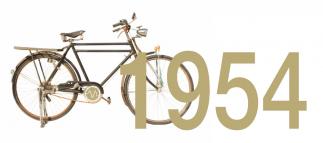
"The lad" enters the professional world
My first year on the job. Business premises were rented, a part-time accountant was hired, customer orders for construction elements that could not be handed over directly from the vehicle to the customer now also came daily by post from Mr. Lehr.
Much to do…
Existing parts were commissioned. The rest was procured by bicycle from Hirschmann, Kathrein and other agencies in the Frankfurt area. They completed the deliveries and the rest went to the warehouse. The packages were packed and taken to the post office or to the express station in the evening. In between, additional components were ordered for the backlog and warehouse, and the incoming goods were checked and stored. Telephone orders were also processed.
Then we had to expand our workforce and a temporary help was added, especially for the errands.
Everything was going well ... when Mr. Lehr suddenly fell ill. He had a severe and protracted case of pneumonia and was no longer able to carry out most of his work in the external sales force.
Oh, you're still just a boy!
"As I didn't have a driver's license at the age of 17, we needed a driver. A man from the apartment building was on hand. With his help, customers were visited three times a week. “Oh, you're just a boy, we didn't even notice when we were on the phone” and similar things were said several times."

In the evenings and at weekends I was on office duty.
This was no longer possible for the long term. The dissolution of the company could not be stopped. The premises were liquidated, the warehouse sold and the company dissolved. With reference to my specialist knowledge, Mr. Lehr tried to secure a continuation of the apprenticeship with the three large electrical and radio wholesalers in Frankfurt. The companies Spoerle KG and Alles GmbH were not interested.
An apprentice with experience
The Hahne company then became the new employer. They quickly took advantage of the apprentice's skills and knowledge as a specialist in radio and television spare parts. They finally had the opportunity to compete with the only specialized competitor at the time, the company Alles in Frankfurt. By the way, there was another way of selling components. A company called Arlt had a good location at the main railway station and sold electronic components to the many commuters for tinkering with and from devices - an electronics shop.
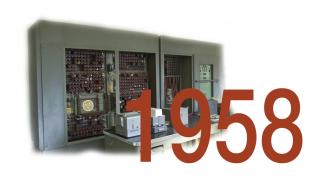
First computer and a major career step up
After my parents moved into a new apartment, my apprenticeship was also completed. Then the now recovered Mr. Lehr got in touch again:
"Boy, I've got something for you. I'm here as an authorized signatory at a company called Mansfeld, a wholesaler of electronic components, and they mainly work with industry. That would be something for you. That is the future."
Electronics wholesalers emerge
There was significant competition at the time, such as the electrical wholesaler Kluxen in Hamburg and Jung in Mainz with electronics departments. The Altron sales agency sold Beyschlag resistors. Then there were other catalog retailers such as Bürklin, Mütron and Schuricht, to name the most important. There were also a number of industrial sales agencies that sold products from the factories they represented for their own account.
Innovations in radio production
“You can work here at Mansfeld as head of the wholesale department and succeed me as the authorized signatory”. This offer appealed to me. That was my future! Even the fact that Mr. Hahne wanted to prevent the necessary dismissal by offering me part ownership didn't stop me. I had smelled a great future in my profession, because modular technology was finding its way into radio-television production, many components were no longer needed as spare parts and demand in the industry was growing rapidly.
With a direct subordinate sales representative and a number of sales representatives from the sister company Masing, now Bosch in Erbach, a manufacturer of numerical controls, Germany was served with success. A first component catalog had to be created. A catalog, warehouse, index cards for goods movement, stock, orders, customer backlogs and a good sales force were the basis for business development.
Many of the components were still very large-volume, because high power was still in demand in electrical engineering; high-load resistors and cemented rotary resistors (potentiometers) up to 500 watts with a diameter of 20 cm were expensive. The stock value for this alone was half a million DM at the time.
One of the major customers: Zuse!
One of the major customers at this time was the Zuse company in Hersfeld. Zuse was one of the pioneers of computers. But the giant system still ran on tubes, filled an entire room and generated a huge amount of heat. But these systems were also a grave for resistors. Back then, two manufacturers such as Rosenthal and Beyschlag were essential to meet demand. There were always extreme supply bottlenecks when the radio and television factories such as Grundig, Mende, Loewe, Saba, etc., struck.
The innovation in electronics, towards miniaturization, was unstoppable - thanks to new components in the low-current range. Diodes and transistors suddenly replaced the large and sensitive tubes. These long-life semiconductors were held in such awe, not least because of their price, that we kept them in a locked storage room.
Of discounts, scaled prices and standard values
Another factor for the business was a price constellation with gross prices and customer-related discounts for industry, institutes, AEG, dealers, etc., which no longer proved successful over time. The good profit margins at that time with little competition can be described today as the pharmacist era. I introduced the system of purchase-related graduated prices. In agreement with the customers, this was considered very fair for the purchase of small and medium quantities and is still common practice today.
Another major step in the learning process was the introduction of IEC standard values. This reduced the creation of a museum that was difficult to sell with the previously very different values in ohms and farads. However, it took a great deal of persuasion to establish this with customers, as changes to parts lists were still very time-consuming without a computer.
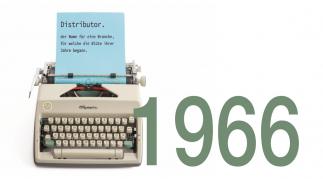
Distributor! An industry term is born
There were problems with most of the representatives of the respective factories, who regarded the wholesalers as competitors. Customers were also not enthusiastic about the electrical wholesalers. The main reason was poor or no stock-keeping. It was very difficult to get industrial customers away from this negative experience. The agencies hardly had any stock either.
That's why we searched intensively for a term to get rid of the negative image. Someone came up with something new.
A Mr. Röderer with knowledge from the USA founded the former company Sasco in Putzbrunn in 1966. He also had the name we were looking for for our special role in the market: DISTRIBUTOR!
The heyday!
Yes, finally there was a name for an industry that was now beginning to flourish. A huge growth market opened up, because the manufacturing plants in industry such as mechanical engineering etc. had to be able to work competitively. There was more and more automation and therefore electronization.
The competition is growing
However, other distributors were founded in response to market developments. This also increased competition on the market. In the course of time, more manufacturers were added to our product range. Everything was moving constantly.
A Mr. Giersch, at that time authorized signatory of the electrical wholesaler Spoerle KG, which served the electrical industry as a strong partner, had the desire to create a joint catalog with Mansfeld GmbH.
After my visit, the idea of making Spoerle KG marketable for electronic components in this way was confirmed. Carlo was a bit clever. It was probably not possible to stop this competitor, but I had to slow the process down. I withdrew with a polite refusal. You often meet twice in life, I thought. Mansfeld's production department was expanded to include timing relays. They also produced electronic controls, e.g. for Rowenta - nowadays this is known as outsourcing.
Time for new perspectives
However, some things did not go well here. Faulty productions devoured the money earned by the distribution department. The overwhelmed owners let themselves be influenced and bullying began. Among other things, I was busy day and night and at weekends with a new extensive catalog.
The responsibility for purchasing and sales was now to be shared with a Mr. Berger, whom I had hired. That was not the plan. Moreover, for me it was only a matter of time before the business failed.
So I looked around for a new job and a new challenge.
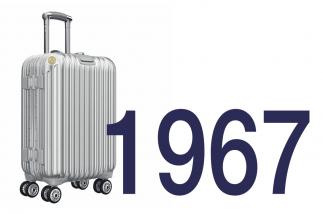
1967 - The path to becoming a broadline distributor
An advertisement in the newspaper: Spoerle Elektronik, a subsidiary of Unielektro in Frankfurt, was looking for a proven man to set up and manage this new company. My hunch after talking to Carlo Giersch at the time was not wrong. This was it for me!
New opportunities
So off to Spoerle, this time electronics, and once again to Carlo Giersch. A short time later, he became the owner and managing director of the newly founded Nord Mende sales companies and also worked there. Nord Mende had realized that the warehouse should be transferred to the sales companies in order to save costs. The sales company then had to hold and finance the warehouse.
This decision was also in line with my opinion as far as the manufacturers of electronic components were concerned, who either demanded stocks from the agents or broke away from them and turned to the distributors.
Many manufacturers only produced to order and had no stock. This was an opportunity for distribution.
As an authorized signatory at Spoerle Elektronik
A contract was signed with me and the newly founded Spoerle Elektronik under the motto: "We let the water - i.e. money - in, and you have to swim". My experience and knowledge were to protect the new company from teething troubles and thus mistakes.
Now I began my new role as an authorized signatory. In addition to two sales representatives from the electrical wholesaler, I hired additional employees for sales and warehouse. We then started with eight employees. Subsequent new hires were mainly apprentices, as there were hardly any employees with professional experience.
With the Roederstein company, now Vishay, and Intermetall, two factories had already been acquired through the neighboring commercial agency Hanneman. I negotiated with manufacturers who were competitors to the partners of my former company Mansfeld, equipped with a lot of documents, deposited in two pilot suitcases. Convincing these factories of the idea and philosophy of distribution aroused great interest. Working day and night, a catalog was created - once again - one of the most important facts for the subsequent successful development of the company.
Messen, Lageraufbau und ein intensiver Vertrieb
In May at the Hanover Trade Fair, the initial stock equipment was ordered. There was hardly anything like it back then. The goods soon arrived, were collected and initially stored in the ancient existing wooden shelves. In July, everything was ready to go.
From then on, often on the road again with the two pilot cases, I try to conclude agreements, and later contracts - at that time still by handshake - with other manufacturers, if possible before the growing competition. The second step is therefore often taken before the first.
Becoming a broadline distributor requires swift action. I tried many times to convey the graduated price concept to the manufacturer partners. At trade fairs, I had already received a friendly reception from some of them. The effort to convince the manufacturer Philips of the concept of a 100% distributor philosophy lead to a visit in Hamburg in front of assembled top management. With success. The scattered policy with too many dealers, some of whom were not dealers at all because they had hardly any stock, was changed and we got the contract.
The market is changing - and so is the way we work ...
As in all industries, competition is growing. Many, especially distributor managers at the factories, are setting up a company. But even the first distributors sometimes fail due to the wrong concept, lose interest or lack succession. Many sell to American, British and other companies that wanted to gain a massive foothold in the European market - especially in Germany.
Only a few of the pioneering companies of the 1950s still exist today, as my extensive archive of comings and goings over the years shows. Employees of failed and sold distributors also found companies. And the company grows and grows. In the meantime, Mr. Schneider joined me as my counterpart for finance and accounting. He had previously worked in Nord Mende sales with Mr. Giersch. There is one more important step to mention. The card index was a thing of the past and IT was introduced.
1978: Independence beckons!
Fierce competition in the entertainment sector forces Nord Mende to sell to the Thomson Group. The sales companies are liquidated. And Carlo Giersch now uses the time to make contacts with American companies. I smell a roast that I really don't want to taste.
What will happen to you if he sells? I am now 40 years old and have a family with two sons. The urge to be self-employed was growing, and it was high time I became self-employed. There's another opportunity for me.
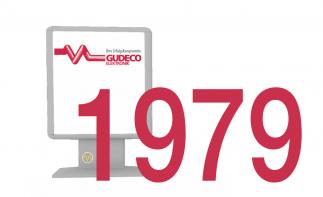
1979 - GUDECO has arrived!
The separation from Spoerle became imminent. It was with sadness that I parted with 150 employees of the company, all of whom I had grown fond of and almost all of whom I had recruited. So it was time to hand over the baton, put the violin back under my arm and swing the baton again.
Partner at Seefrid
When Mr. Seefrid left the company, I became a partner in the well-known commercial agency Seefrid, which had been established for many years.
Well-known manufacturers such as Tehalit with cable ducts, Niedax for metal cable trays, Rafi with switches and pushbuttons etc. and Contelec Switzerland in the field of potentiometers for electronics were some of the companies represented.
There it was again, the Rafi company, which had been with me since my time at Mansfeld GmbH.
Gutstein / Denner Elektronik Components
"Yes, commercial agencies ... did they still have a future? That's why it was obvious to found my favorite child, distribution, together with my partner Mr. Gutenstein from the sales agency. GUDECO Elektronik was founded as a second leg."
Both owners gave the company its name - G U D E C O - Gutenstein/Denner Elektronik Components.

But the situation was already more difficult now. Most manufacturers had their distributors. As you know, I was the cause of this myself. It was not possible to get several lines in order to create - once again - a complete catalog. GUDECO now started with the companies Hellermann and APEM. As usual with a warehouse - I always say “the heart of the distributor” - and “the soul”, that is all our long-serving employees.
To help us get started, Hellermann sent us orders for small to medium quantities from customers for processing. This approach was later adopted by all our partners in order to minimize costs. The decisive factor was always a warehouse with the distributor.
Inevitably, there were initially only partial catalogs of the two factories. Since GUDECO Elektronik had not yet existed officially, and I initially worked mainly for the commercial agency Seefrid, GUDECO hired Mr. Otto, a man of the first hour, who later became head of logistics/warehouse.
Slowly and steadily, success grows.
In addition to the supply orders from Hellermann, acquisitions were now being made and the two sales representatives were working together with the sister company Seefrid. This only got off to a very slow start. Although many customers were aware of my skills in the past and those of Seefrid, they wondered whether this would work again this time.
So I also drove to the customers. Slowly but steadily, the business grew. As a result, I had to give up my job, not my partnership in the Seefried agency, in order to concentrate fully on GUDECO.
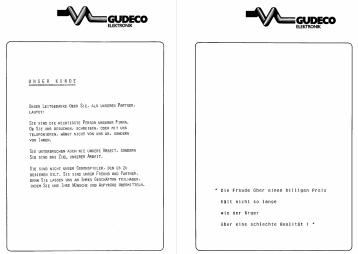
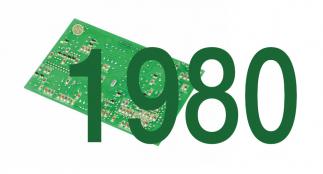
Inovations. Success. Growth.
With the space-saving electrolytic capacitors with snap-in connection from Panasonic as a design-in product, we had a top product in the no longer very innovative passive sector. Special miniature electrolytic capacitors were offered as an inexpensive replacement for tantalum capacitors, which were always plagued by supply problems. Multilayer capacitors from Murata were also very popular as a design-in product, replacing the large-volume film and single-layer capacitors.
These and other door-opening products also increased our business for the other products from our plants.
1981: Crucial takeover
In this year, something serious happened for the further growth of GUDECO. The successor company to Mansfeld, then Berger-Elektronik, went bankrupt. We took over the Draloric (now Vishay) and ELU plants, the current orders, the warehouse there and the customers. I had known the plants for a long time. That brought GUDECO a big step forward.
1982: Mechanical products
Then came another big step, which has been fruitful and successful to this day. The company Rafi was already represented by the company Seefrid. GUDECO was now added as a specialist distributor, making it a suitable partner for the sale of products that require intensive consultation for both office and field staff. With these mechanical products, the top-heaviness in the passive area was now also reduced.
1984: Reinforcements
In 1984, two additional sales representatives were hired to reinforce the company and actively supported further market expansion.
From 1985: New products, double stock
In 1985, the time was ripe for a sensible, supplementary second supplier solution in the now strong electrolytic capacitor sector. With ECC, another major manufacturer was added to our product range.
The large, wide-ranging warehouse in the passive sector was now still available for optimum delivery service. There was a drastic, innovative development. SMD technology was on the rise and a double stock had to be built up. At this time, however, many large-volume components in the wired area also fell by the wayside.
Many single-layer capacitors, high-load resistors and other products had to be scrapped.
The task now was to further expand the mechanics division to secure the company. The companies Zettler, MPE, NMB, Stannol and Loctide were added in 86/87.
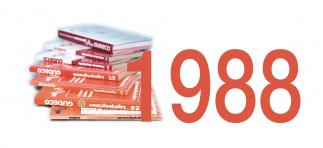
"Addition to the family" at GUDECO
In 1988, my partner Mr. Gutenstein wanted to bring his sons, who had grown up in the meantime, into the company. In this context, he wanted to withdraw from GUDECO-Elektronik in order to continue his own agency business with his sons. I agreed to this and he left GUDECO. At the same time, I parted company with the Seefrid agency.
This allowed me to devote 100% of my heart to my child distribution.
Michael joins the crew
My son Michael had completed his training as a wholesale and foreign trade businessman in a well-known company in the construction industry and therefore had all the prerequisites to help run our trading company. I brought him into our company as a partner and managing director. I wanted him to get to know GUDECO at an early stage, learn how to manage it and help build it up.
The name GUDECO was well established and was to remain. The version of the name composition was now called: Gut Und Dauerhaft Electronic-Componenten Ordern. (= Odering electroinc components well and permanently).
Our headquarters grew in the former house of commercial agents in Eschborn. Due to the departure of agency colleagues who had grown in size in the meantime and the takeover of the vacated rooms, there was space again. Soon that, too, became too small.
1992 / 1993: Neu-Anspach office
After the construction of the office building in Neu-Anspach in 1992, we were able to move in there in January 1993. Forward-looking construction and size allow GUDECO to grow even further.
The first serious recession hit us - and not just us - right at the time of this major investment. An unexpected rise in the cost of the building increased the need for financing. The banks had just lost a lot of money through a certain Mr. Schneider and were suddenly extremely reluctant to finance the project. But this hurdle was also overcome. GUDECO remained on the market.
A good time for the Global distributors to take over other distributors. GUDECO also received offers. But other so-called catalog distributors such as RS Components and Farnell also established themselves on the market.
1994
In order to bring more valuable experience into our company, we brought in Ludwig Schneider as an independent external consultant.
He acquired his knowledge at well-known companies such as Nordmende and Spoerle Elektronik.
1996: We need a sales manager
The size of the company, which had grown considerably in the meantime, required an expansion of responsibilities.
Detlef Kreß, a former sales employee, returned to the company. In the meantime, he had gained further experience and knowledge in sales and IT in his father's company.
As sales manager, he was now responsible for managing internal and external sales.
1999
Michaela Jansen (now my daughter-in-law) starts her career in the company in the purchasing department.
From 2000: New partners and an office in Berlin
From the boom year 2000 onwards, our customers contributed to further strong growth.
But new partners such as Samsung, AVX, Firstohm, Samwha, ITW and ACR were also added. The new passive catalog, for the first time and uniquely divided into wired and SMD components, did the rest.
The development of our office in Berlin should also not be forgotten. With Lutz Oehlschlägel, we hired an experienced salesman as branch manager in Berlin, who took up his work primarily in the field.
Another member of staff joined the office team to handle the larger business expected in the east and north of Germany.
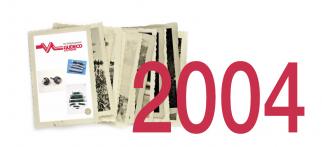
25 years of distribution history
"For my 25th anniversary, everything now coincided very positively with my 50th professional anniversary and the perfect conclusion to my time as Managing Director of GUDECO. The course has now been set for the future of our company."
Entry of Patrick Denner
My son Patrick came to GUDECO Elektronik. He had previously improved his language skills and gained experience in the USA.
He then worked for a component broker and then for an electrical import company that traded in Far East products. With this knowledge, which was also useful for GUDECO, he took over the management of the purchasing department. As a further managing director, together with his brother Michael, he steered the development of the company and preserved my life's work.
Still on board as a partner and consultant
Now retired, but with heart and soul, I have remained with the company as a partner and consultant. So I am still busy and tangible, perhaps sometimes even perceptible.
Countless experiences and anecdotes from the past 50 years would fill a book. Back then, the pioneers of the development period had great growth ahead of them. With ambition and hard work, the sometimes rocky road ahead was easier than it is today.
I would like to end my account of this eventful time here, but I would also like to mention that maintaining a business and therefore jobs - and this applies to all companies - is not easy today.
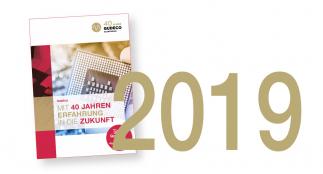
To a sccessfull future!
I believe that the development of our company provides motivation, especially for the youngest employees, to enjoy working on the future of this industry.
An industry that is characterized by rapid innovation, in the words of our Wilhelm Busch:
"One - two - three! Time runs at a whizz - we run with it"!



